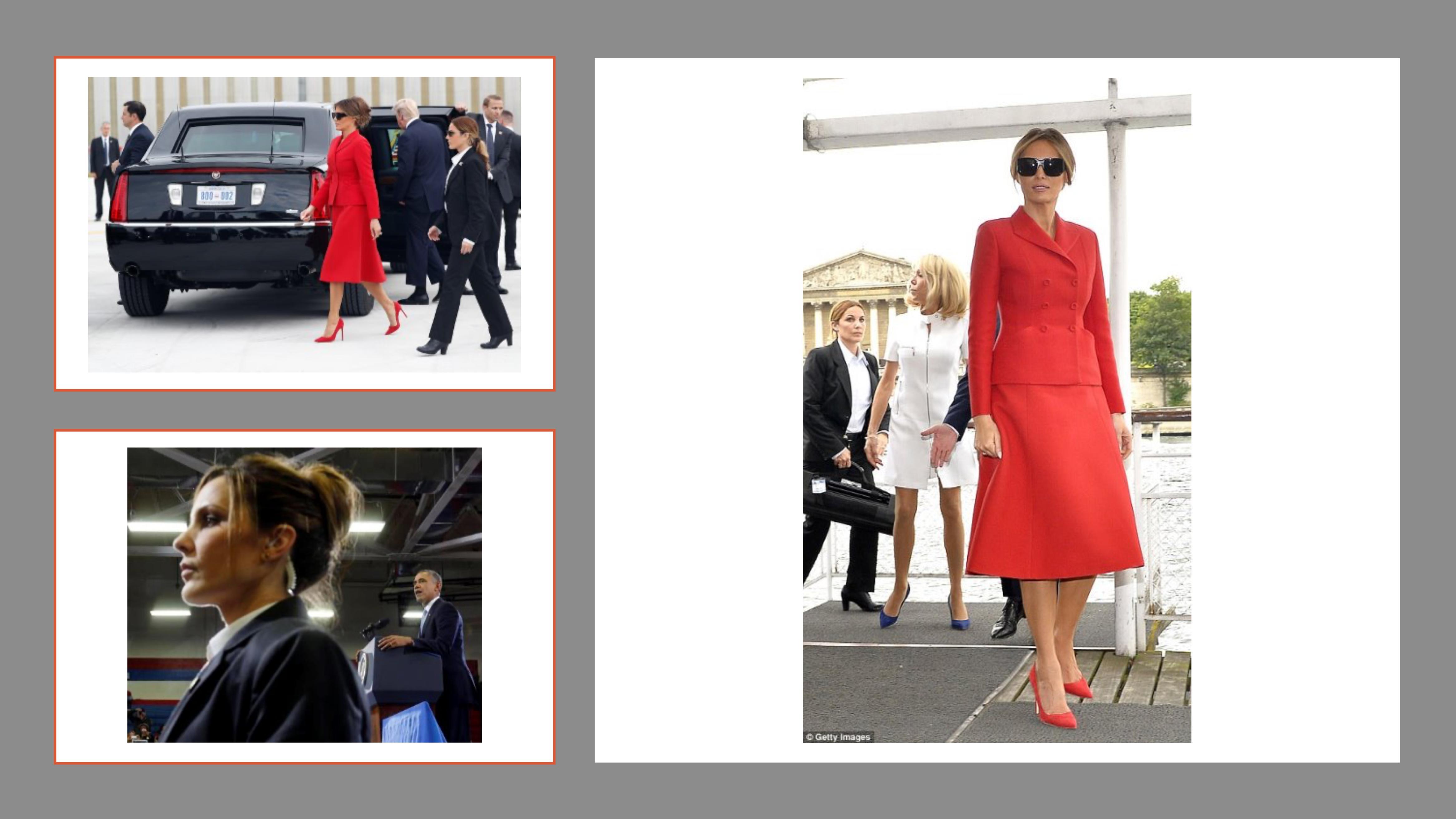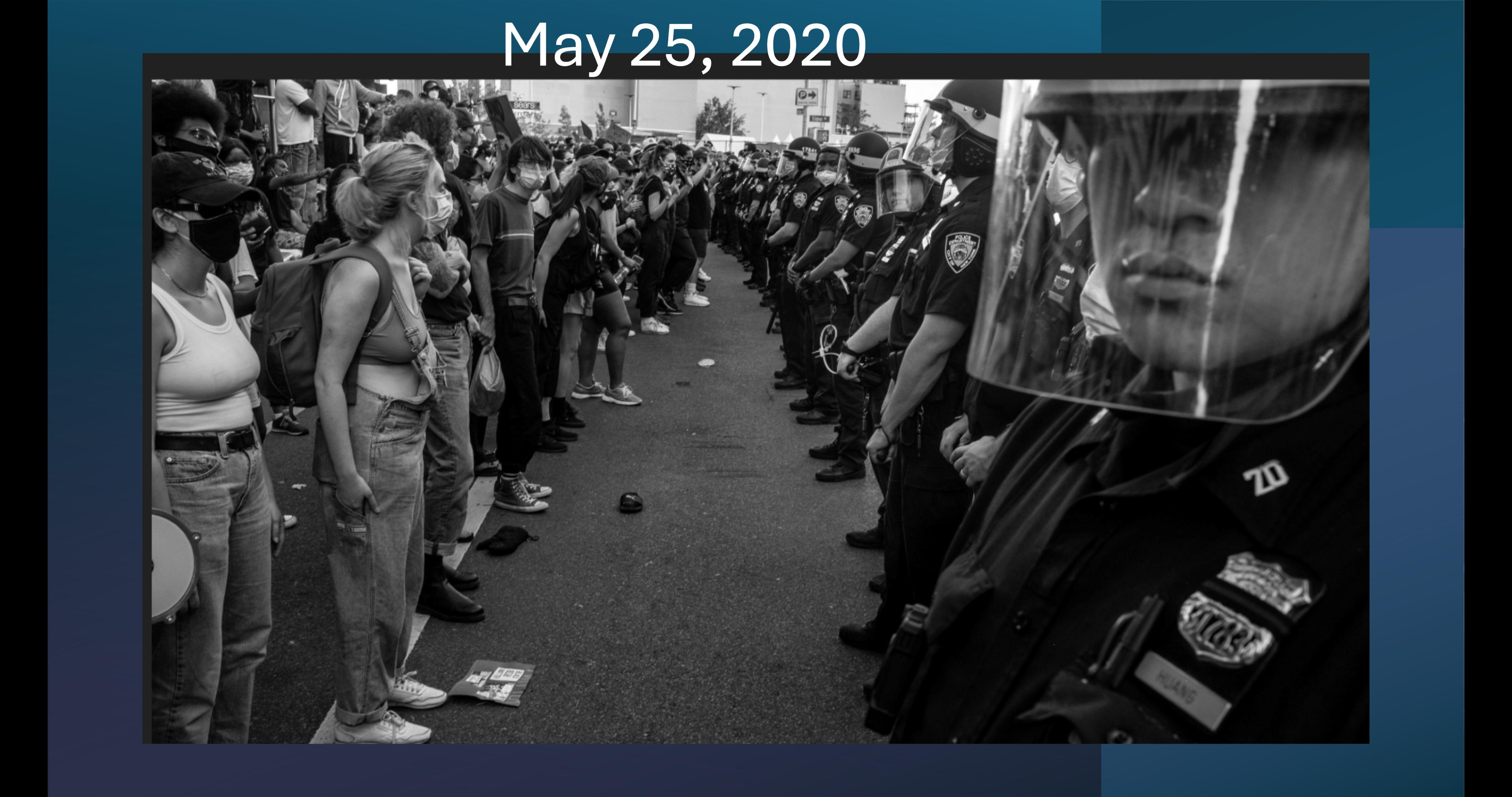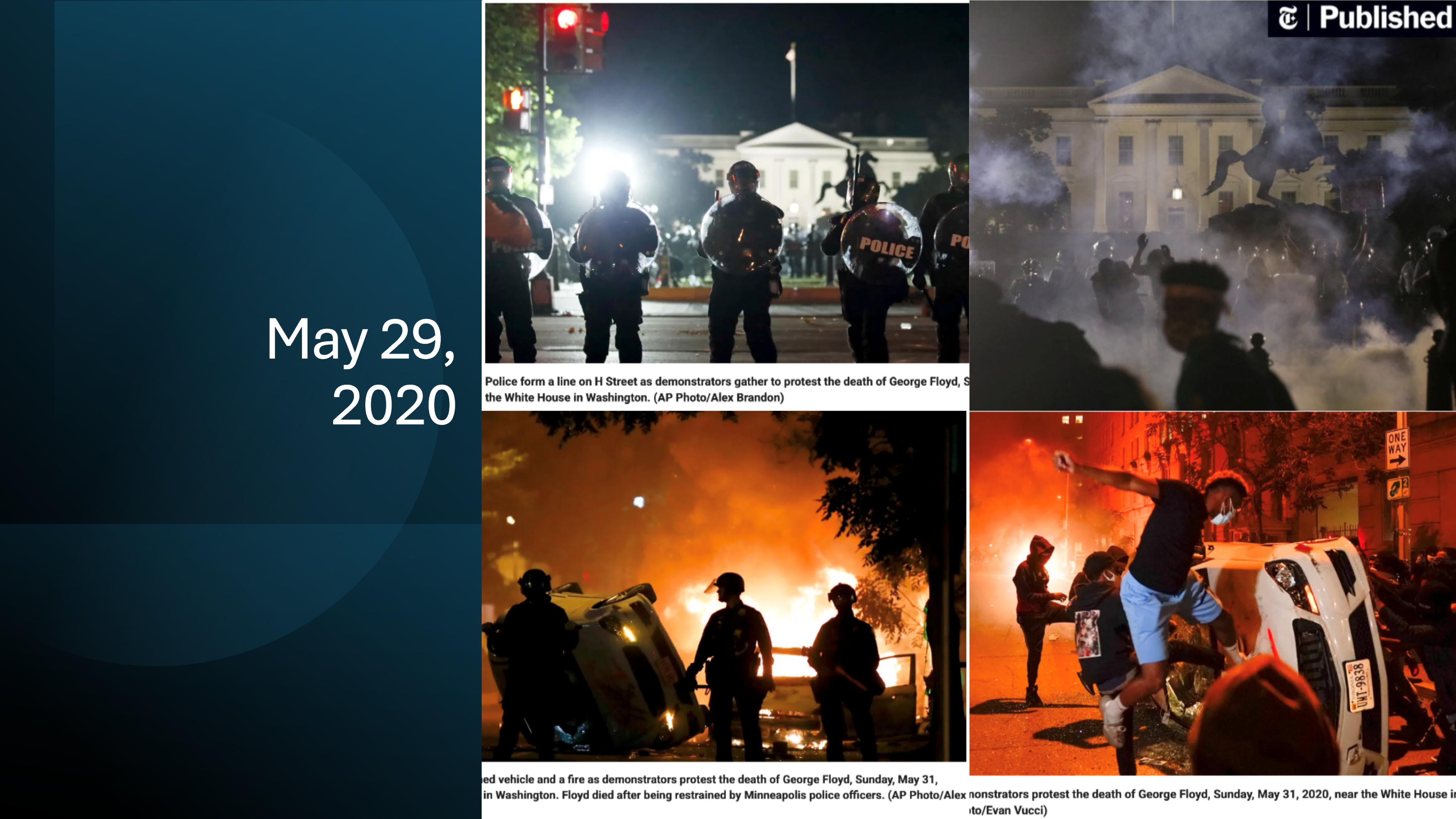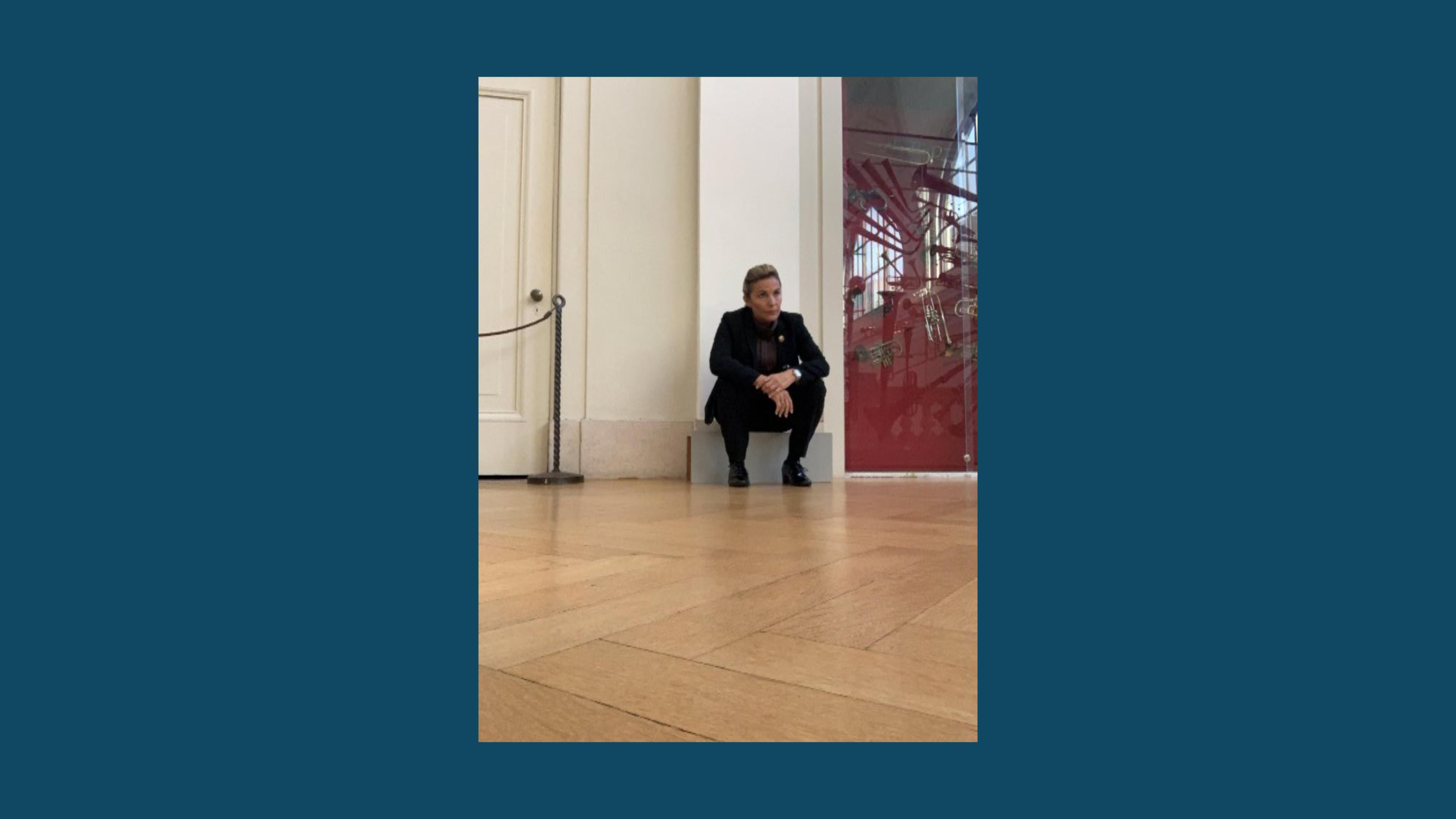



















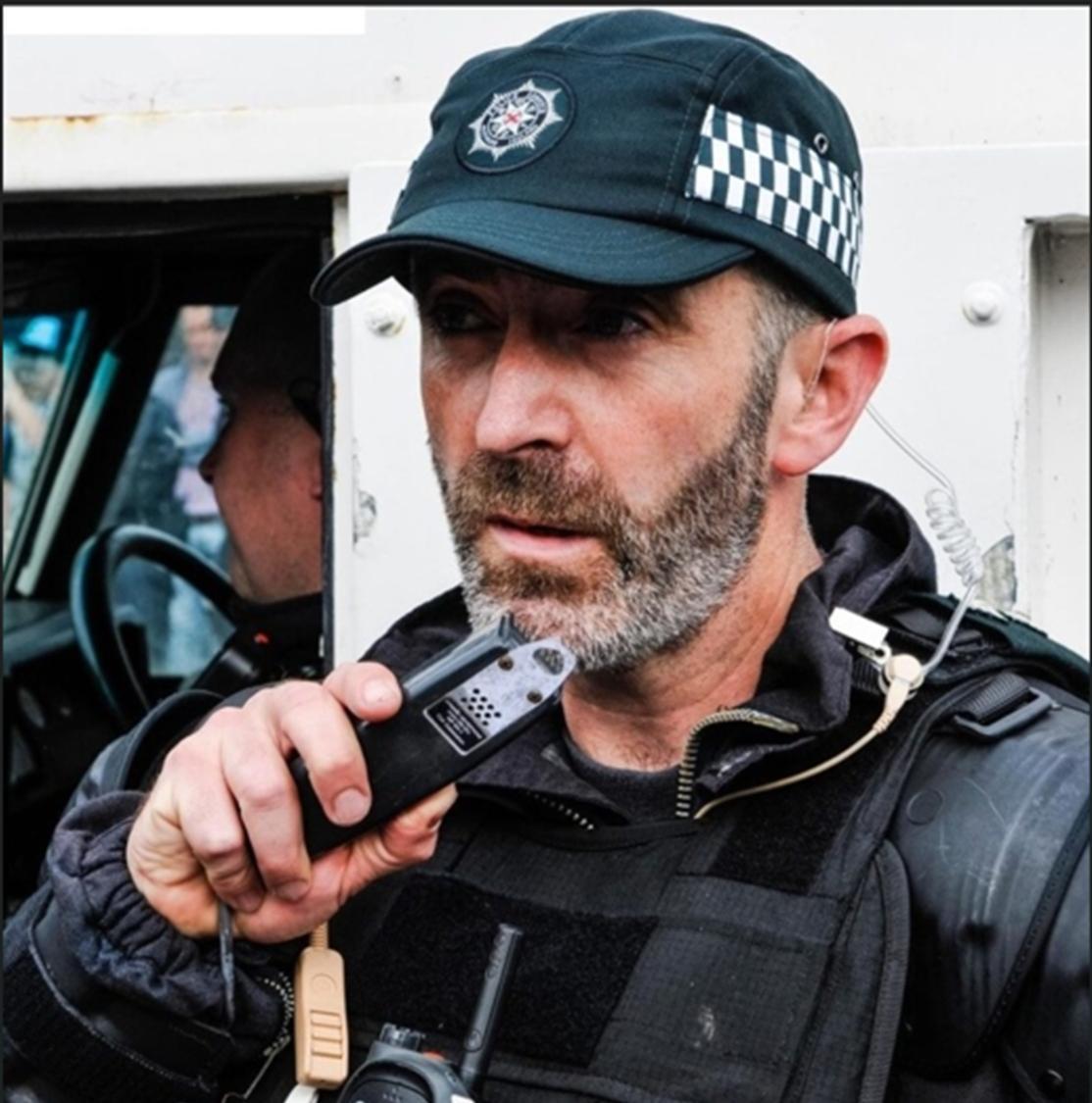
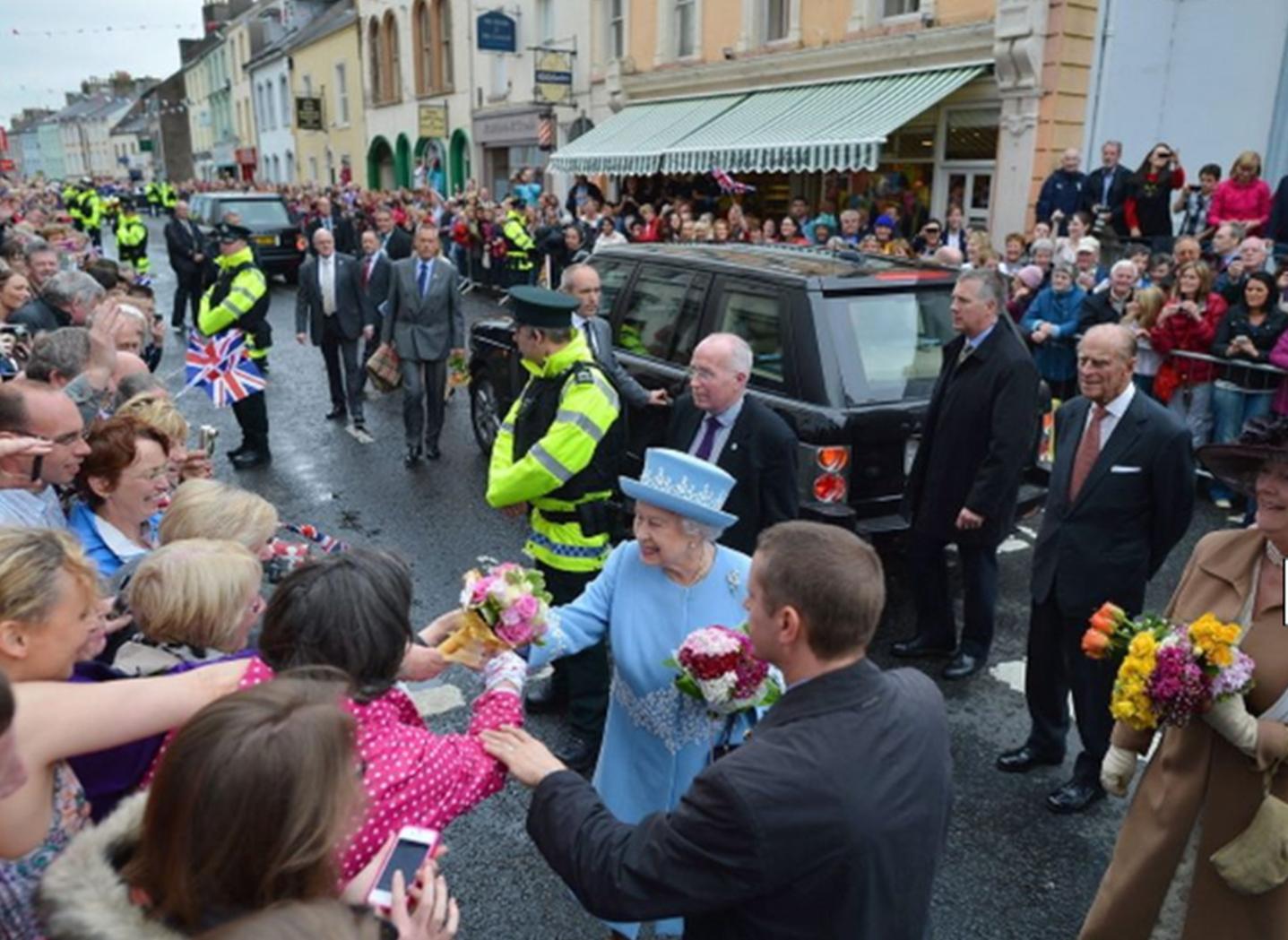


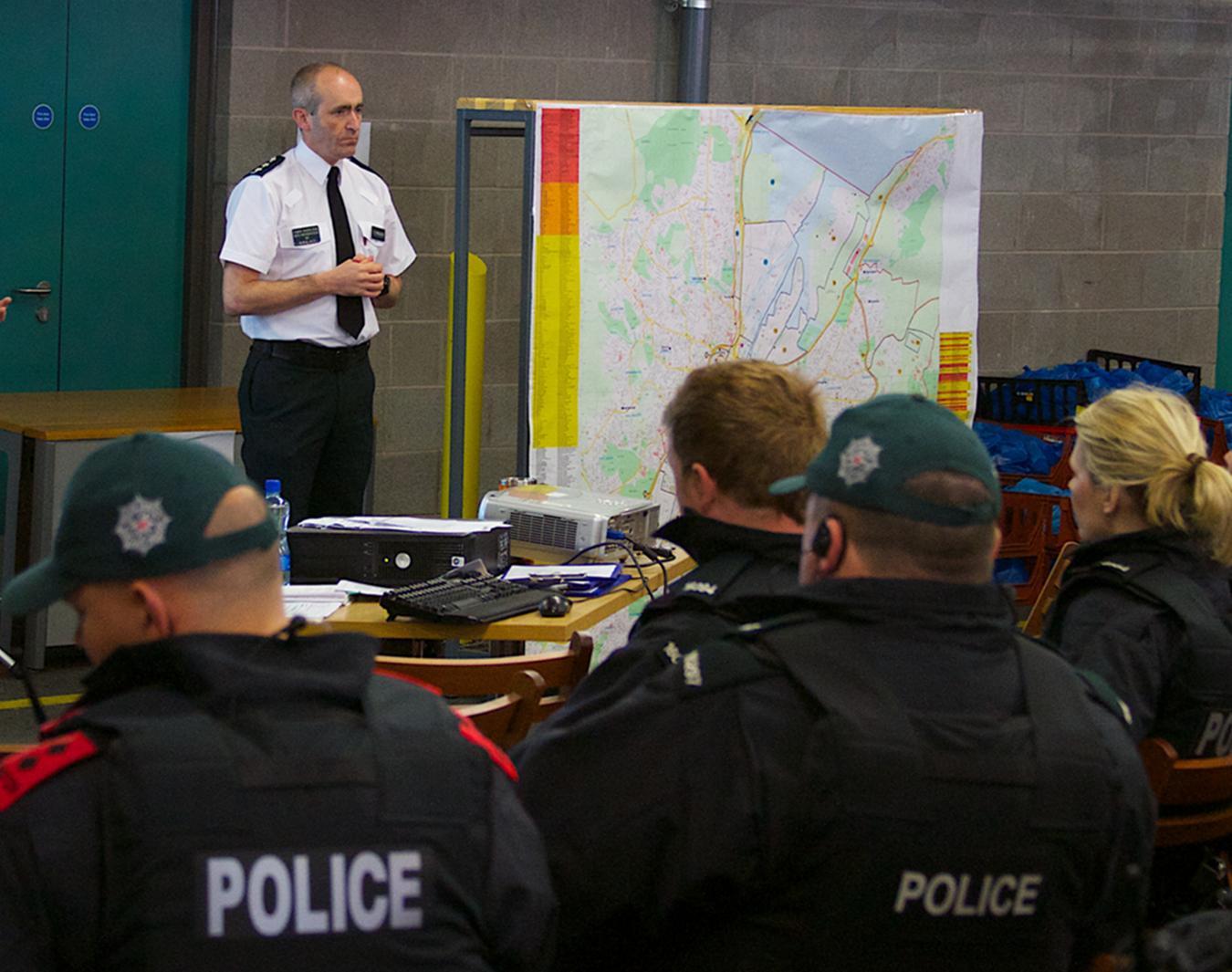
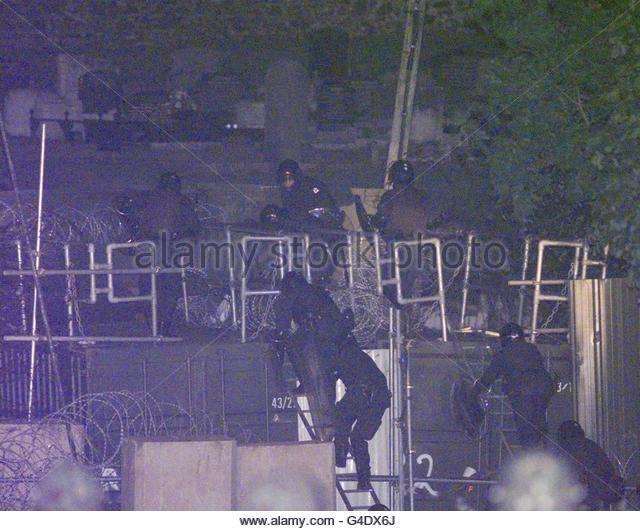
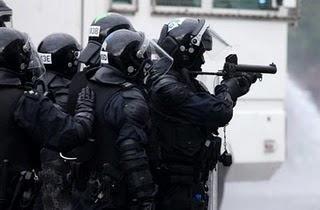
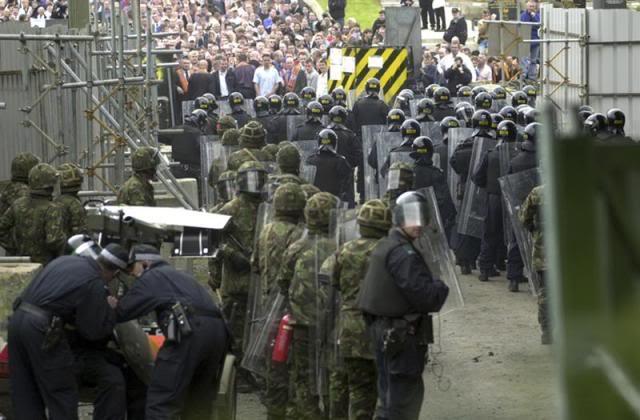



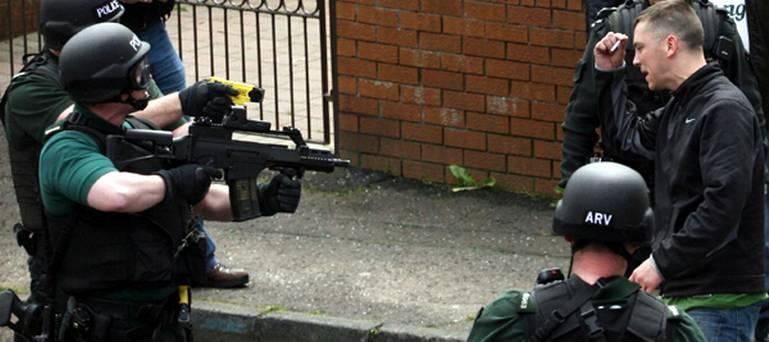



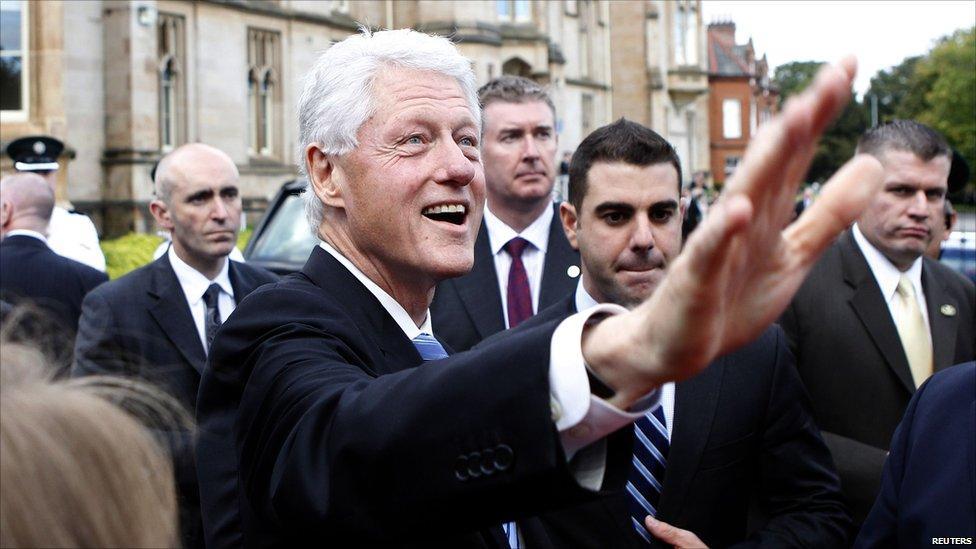

• Nigeria – Justice for all and the Chibouk ‘Girls’
• Poland - developing Counter terrorism for Counter Terrorism and Human Rights
• Wyoming – Decision Making
• California – Counter Terrorism
• Albania – Counter Terrorism
• Spain – Counter Terrorism
• Sweden – Human Trafficking
• New York – Witness Protection
• Malawi – Public Disorder
• Ukraine – Close Protection
• Turkey (CEPOL) – Counter Terrorism

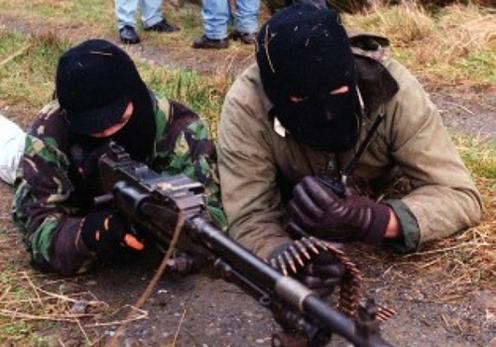

In his 1998 book entitled Terrorist’s Target Selection, Drake outlines an number of stages to a pre-planned terror attack. These are:
1.Setting up a logistical network (This requires funding)
2.Selecting potential targets
3.Gathering information on potential targets
4.Reconnaissance of potential targets
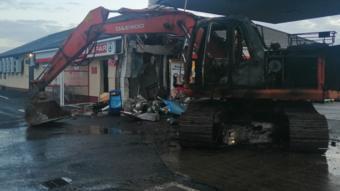



Vehicles as weapons – used by organised crime for years prior to terrorist adoption

size does not fit all

This is a Threat not a Risk so it will evolve, adapt to our efforts
Intention = Constant Capability = High, anyone can own, hire or hijack a vehicle. Opportunity (including vulnerability and proximity) This is the part that can be limited.
Create Criteria –what makes a target attractive? ‘Red Team the problem.
• Iconic (optics)
• Political
• Financial
• Numbers of Casualties
• Religious
Minimise Monitor Economise
Prioritisation of attack Sites Control Measures Governance
Patrol Structure
Patrol Programme Equipment
Intelligence and Briefings
Audit and Compliance
Mitigation –what is the plan if all this fails?
Crisis Management – The planning for this will assist in any terror attack. It allows for ‘skills transfer’. Also this should incorporate ‘Reputational Risk’.
• Response Plan(s)
• Training
• Exercise
• Command and Control
• Environmental Scanning and assessment of international attacks.
Decision Making and Psychological Factors, thinking the right way for the right problem at the right time.
By using the response to teams to improve the development of plans we are already psychologically preparing them for the actions they will have to undertake under high stress which will improve performance.
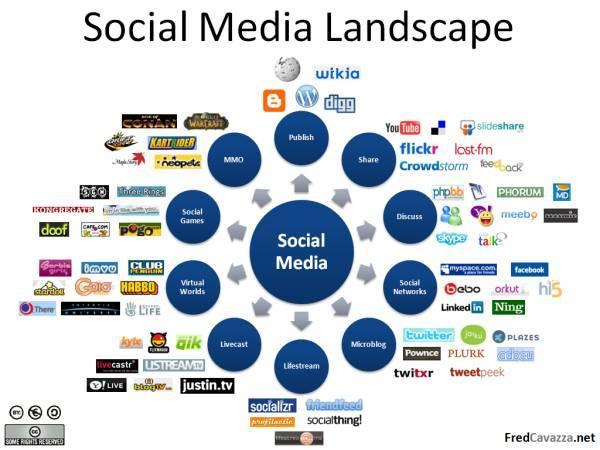
Strategic compression –your lowest employees on the front line can now
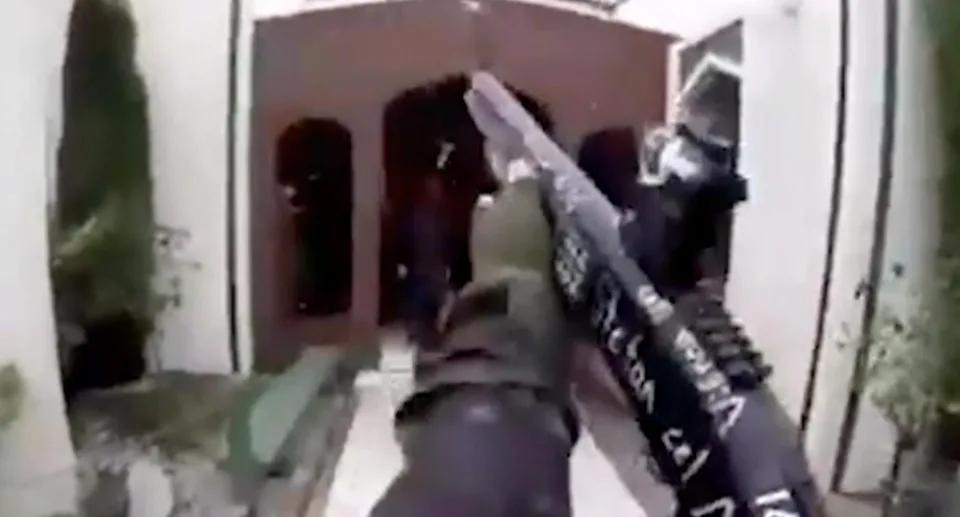

• If you can move weapons you can move / acquire drugs
• If you can move drugs you can move / acquire weapons
• If you can traffic people you can do both (poly crime)
• All can be facilitated by Cyber


• Monitoring • Censorship
• Attacks on infrastructure

• CVs
• Qualifications
• Vaccinations
• Passports and Visas
• Country brief
• Humility
• Not online
• Legal/ Case Studies/Exercises
• Tell them what is going to happen but still surprise them (+1)
• Administration


‘Nothing happens quickly until it happens, then it happens quickly.’
US Delta member, Quantico, Virginia, USA, 2018.
‘It takes an awful lot of hard work to make nothing happen.’
K A Pennington Mlitt Terrorism Studies, St Andrews University, Scotland
- The Strategic impact of Terrorism on The Maldives
- The significance of Human Rights compliance in countering terrorism
- What is the ‘Nexus of Crime’?
- What is intelligence and how does it differ from information?
- What are the different sources of intelligence?
- Maritime specific intelligence
▪ Definition of Terrorism (Use or threat of force to compel a government or populace to do or not do something or cause fear). Religious, ideological, ethnic, national, right wing, left wing, single issue. Typically involves ‘a narrative’. No international agreement. How is it different to Organized Crime? They don’t always work together –Italy. Terrorism seeks to justify the violence it employs, Organized Crime (typically) concentrates on profit.
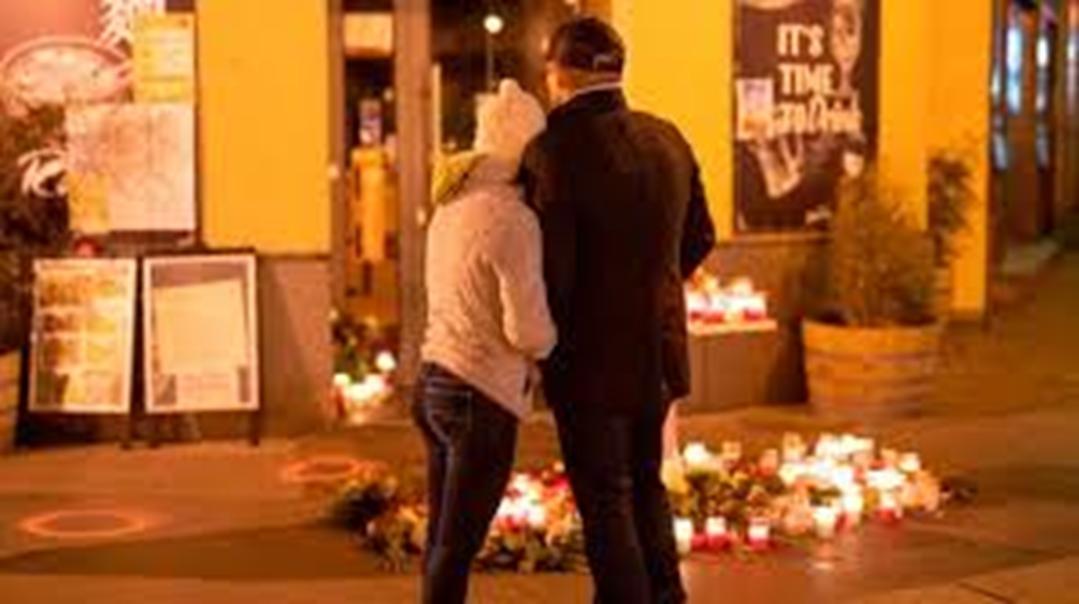
• The World Bank in The Maldives, 2023.

• The economy has maintained its strong growth momentum in 2023 due to rising tourist arrivals, and, with rising tourist arrivals, is expected to maintain a strong growth and poverty reduction trajectory.
• Overall, sustained growth performance in the last decade has significantly reduced poverty.
• The economy is heavily dependent on tourism which has been the main driver of economic growth
• Public debt is expected to remain high
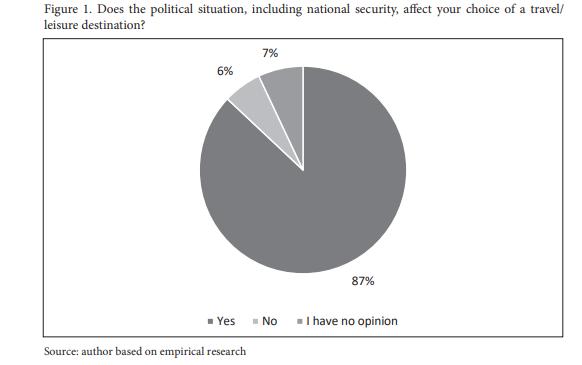
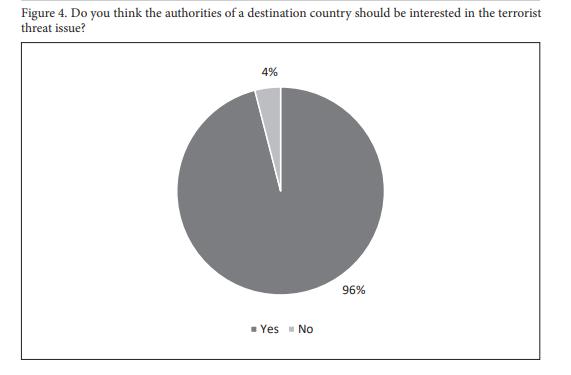
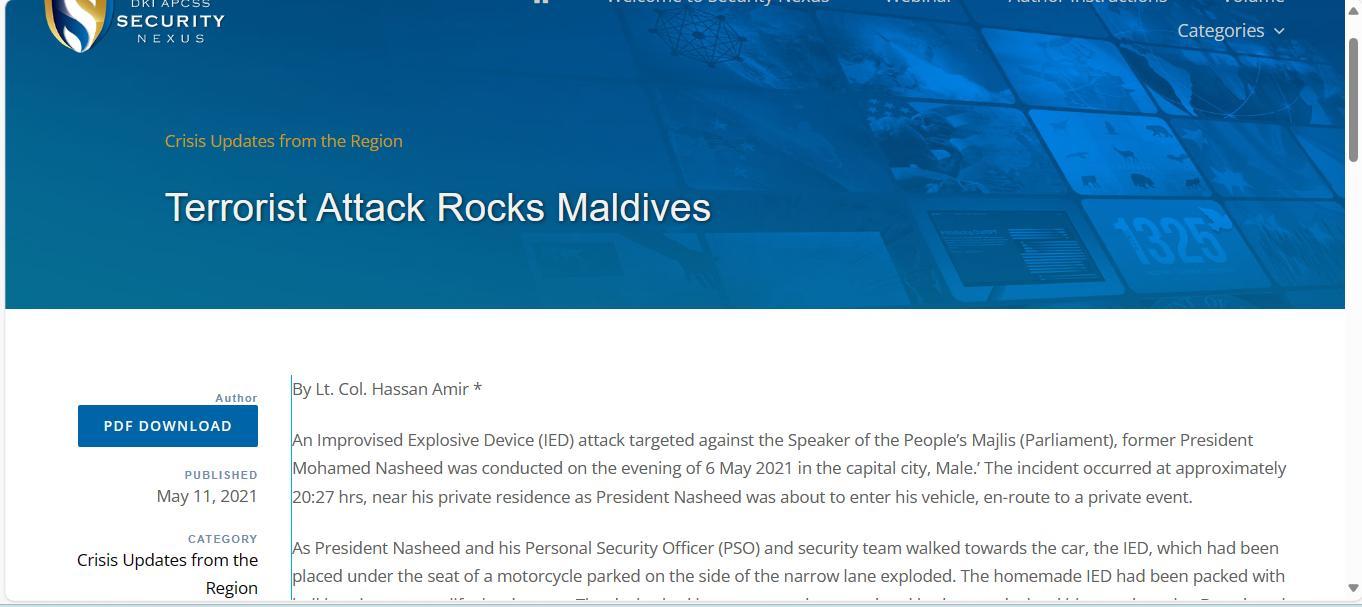

• UN Human Rights
• The United Nations Human Rights Treaty Body, UN Treaty Body Database, outlines a number of key areas ratified by The Maldives, these include (not exclusively):
• Convention against Torture and Other Cruel Inhuman or Degrading Treatment or Punishment
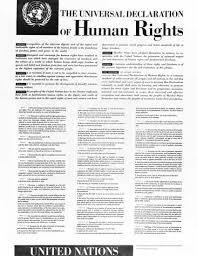
• European Convention on Human Rights
• The these include (not exclusively):
• The Right to Life
• The prohibition on Torture and Other Cruel Inhuman or Degrading Treatment
• Positive obligation on the State

How is Terrorism similar to Organized Crime?
• Methods
• Experience
• Recruiting
• Personnel
• Resources
• Finance
• ‘Taxation’.
Law Enforcement tends to ‘silo’ these different activities, unfortunately we forgot to tell them.
The Nexus of Crime Organised Crime Human Trafficking
Terrorism
Simple answer – intelligence has typically been graded and analysed –more to follow.

• Human intelligence (HUMINT): Agents, Sources, interviews, witnesses or appeals for confidential information
• Community Intelligence – pre incident, establishing rapport
• Signals intelligence (SIGINT): Includes communications intelligence (COMINT), electronic intelligence (ELINT), and foreign instrumentation signals intelligence (FISINT). Outside of the military world this will likely involve mobile phone interception for the use of geographical movement and / or app content. (Legal power to access?)
• Imagery intelligence (IMINT): Includes visual photography, radar sensors, and electro-optics (CCTV , dash cameras, home security, phones etc.
• Open-source intelligence (OSINT): Intelligence that can be easily obtained from publicly available sources like websites, databases, news, and social media. (Very often used by terrorists and organised crime)
• Financial intelligence (FININT): Gathered from analysing monetary transactions
• Surveillance devices whether video or audio
• Surveillance teams
• Physical security inspections
• Wireless scanning / RF frequency scanning
• Employee behaviour training inspection (insider threats and close protection)
• Analysis
•

• Human intelligence (HUMINT): Agents, Sources, interviews, witnesses or appeals for confidential information
• Community Intelligence – pre incident, establishing rapport
• Signals intelligence (SIGINT): Includes communications intelligence (COMINT), electronic intelligence (ELINT), and foreign instrumentation signals intelligence (FISINT). Outside of the military world this will likely involve mobile phone interception for the use of geographical movement and / or app content. (Legal power to access?)
• Imagery intelligence (IMINT): Includes visual photography, radar sensors, and electro-optics (CCTV , dash cameras, home security, phones etc.
• Open-source intelligence (OSINT): Intelligence that can be easily obtained from publicly available sources like websites, databases, news, and social media. (Very often used by terrorists and organised crime)
• Financial intelligence (FININT): Gathered from analysing monetary transactions
• Surveillance devices whether video or audio
• Surveillance teams
• Physical security inspections
• Wireless scanning / RF frequency scanning
• Employee behaviour training inspection (insider threats and close protection
• Analysis
•

• Gathering Intelligence from communities
• Encouraging reporting
• Ideology versus methodology

• They know what is normal and what is abnormal
• ‘Strange is the absence of the normal or the presence of the abnormal’
• They are 24/7
• They hear and see what you won’t
• They chose to help or not
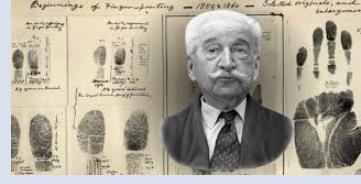
• Encouraging reporting



• Ideology versus methodology
Ideology
Their Narrative
We are protecting you
We are protecting you freedoms
We will keep you safe
May have some public sympathy
Methodology
Extreme violence
Narcotics
Extortion
Recruiting / Radicalising youth
Will have little public sympathy
• How is intelligence graded?
• How is intelligence analysed?
• How is intelligence incorporated into decision making?
• Counter Terrorism Strategy
What is intelligence and how does it differ from information?
Simple answer – intelligence is typically been graded to determine
• The reliability of the source
• The accuracy of the information
• (Usually some rules regarding who can receive it)
Do you know your grading's? Are they the same as your partner agencies grading's?
Do you know how international partners grade intelligence?
How is intelligence analysed?
• What are the reporting systems – during hours and out of hours?
• Who collates / collects the gathered intelligence?
• Who analyses the intelligence?
• How is the intelligent product disseminated?
• How do you protect lives without compromising the source of the intelligence?
How is intelligence analysed?
• Trained Analysts
• Analytical Centre (forward, current and historical)
• Security
• Briefings (problem, network and suspect profiles)
• Network Analysis
• Pattern of life
• Single points of failure
• Communications methods
‘Everything good that happens seems to come from good intelligence’
General Creighton W Abrams, USA, 1970

Communication Methods
• Word of mouth
• Speeches by elites
• Flyers and publications
• Video / Audio recordings
• Radio broadcasts
• Television
• Web
• Telephone (emoji's)
• Competitive Learning

‘Everything good that happens seems to come from good intelligence’
General Creighton W Abrams, USA, 1970

– 10.00
• How is intelligence incorporated into decision making?
Gather Information / Intelligence
Take Action and Review what Happened Human Rights
Identify Options and Contingencies
Assess Threat & Develop a Working Strategy
Consider Powers and Policy
Stabilise the situation
Concentrate on those or what is immediately affected
Think who / what else is affected, who needs to know - consequences
“The use of intelligence is essential in most investigations.” however, intelligence may not be admissible as evidence, why?
• Human source intelligence is sometimes obtained from individuals who will testify or who be poor in court.
• Human source intelligence is often the only practical way to uncover sophisticated schemes and, convert to evidence, for court.
• How can you convert nonadmissible intelligence into court-admissible evidence?
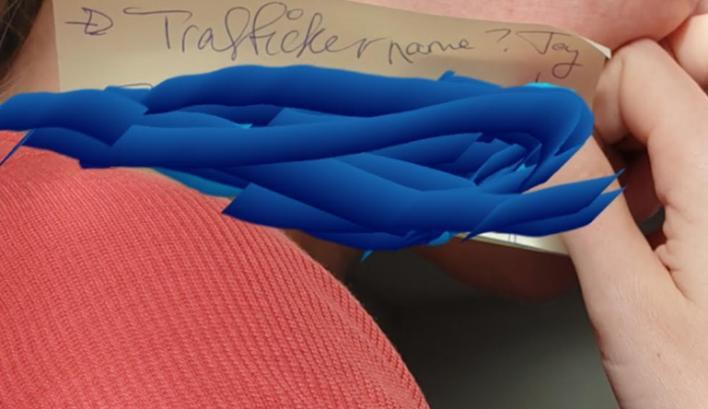
Counter Terrorism Strategy
• Not everything needs to be acted upon right away – depending upon the risk, i.e. Threat to life, consequences or opportunities.
• ‘Away and Home Teams’
• The Funeral


10.30 – 10.45 Session 3 : Strengthened Interagency Collaboration.

10.30 – 10.45 Session 3 : Strengthened
• Sharing intelligence
• ‘The System was blinking red’
• The Firehose
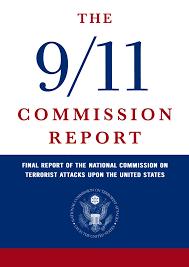

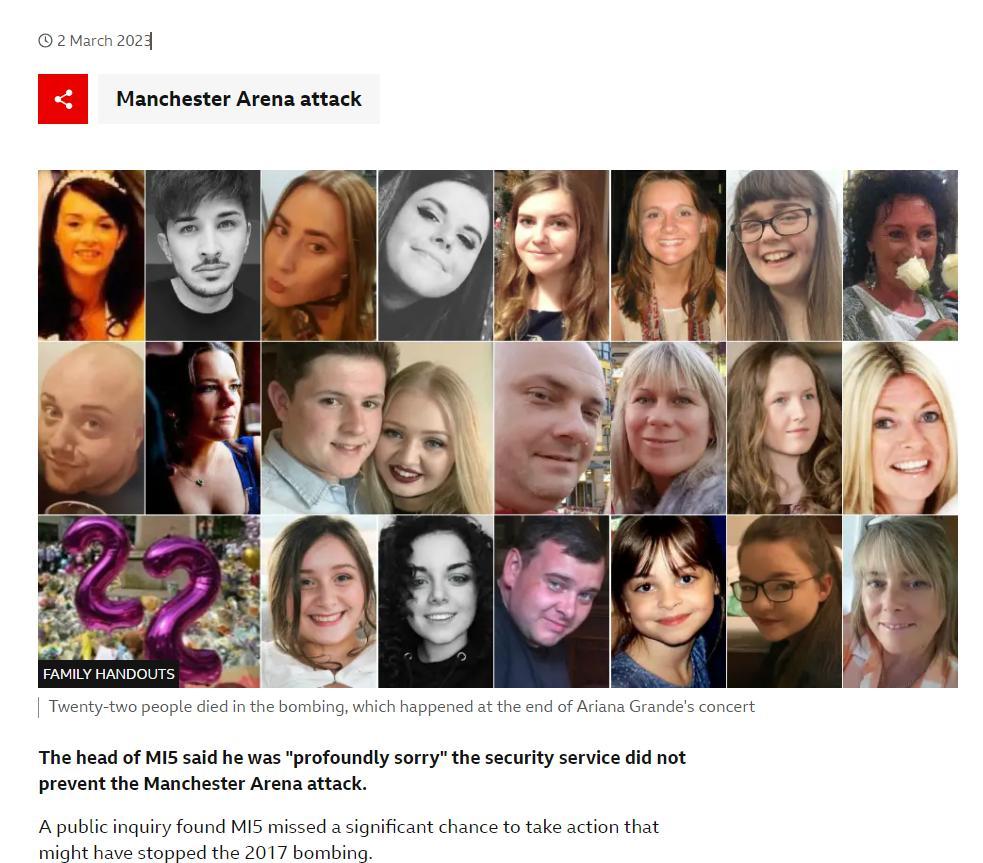
• Terrorist methodologies
• Terrorist target selection
• Preparation to support remote locations (the distance from assistance)
• Terrorist target selection
Critical Infrastructure
Un Definition
• The physical structures, facilities, networks and other assets which provide services that are essential to the social and economic functioning of a community or society.

• The CARVER matrix is a target acquisition system
• Used by French Agents behind German lines in World War 2 it was subsequently used by the US in the Vietnam War
• Helpfully The US trained Al Qaida in the system during their conflict with the Soviet Union
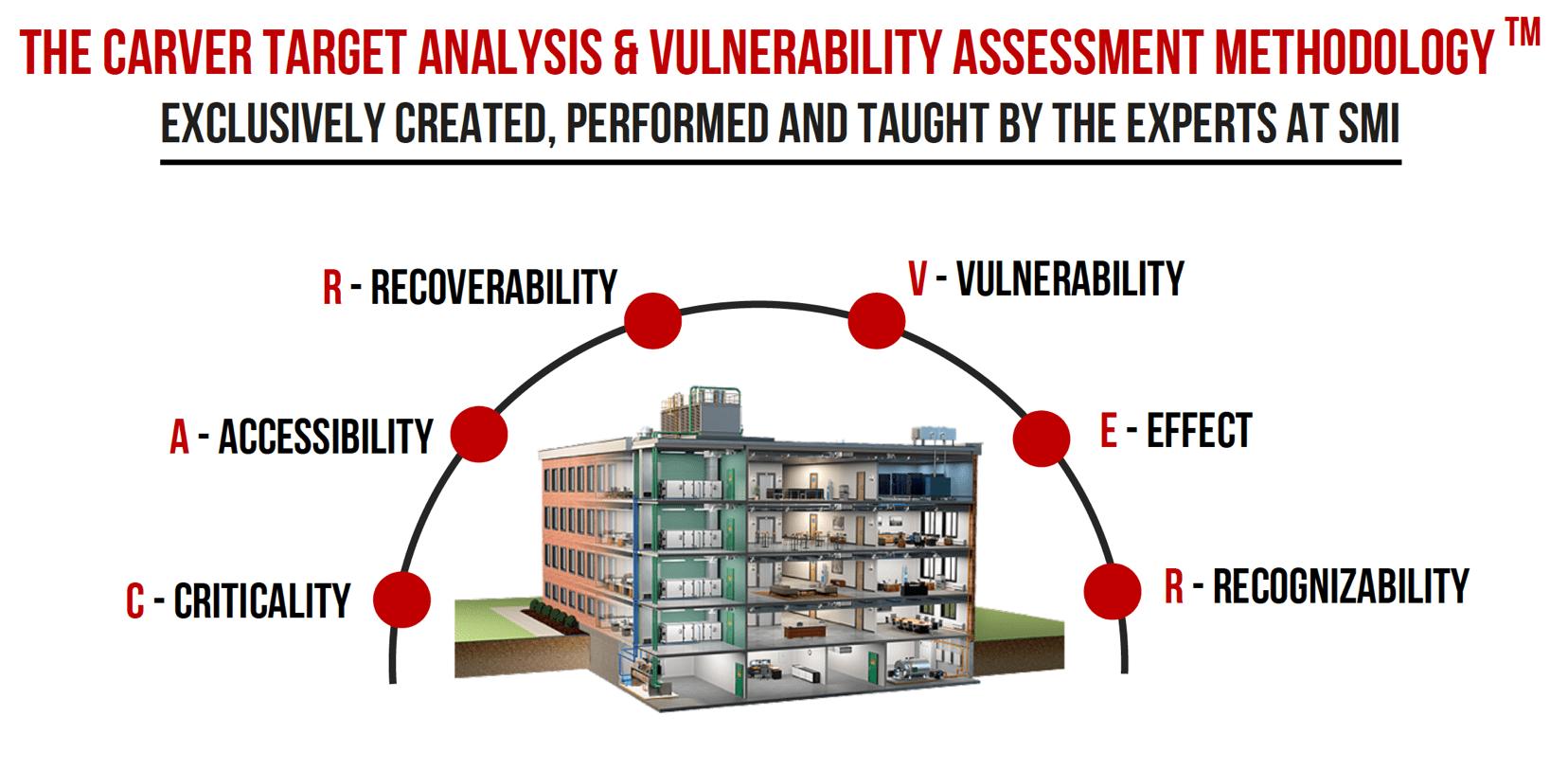

When I show you the location – I want you to mention the first thing that comes to mind
I want you to mention the first thing that comes to mind for






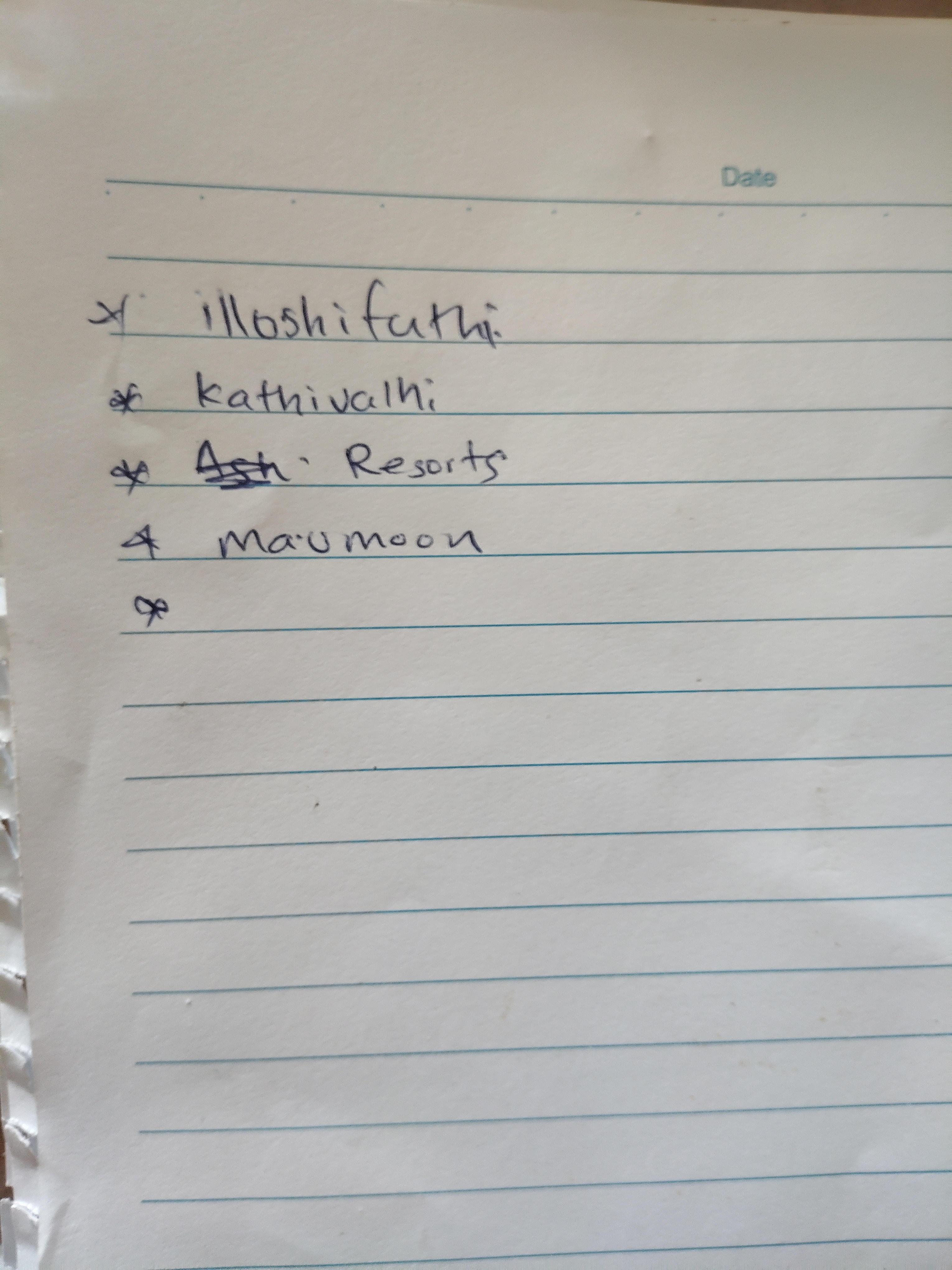




• Geography
• Time frame
• Access to equipment
• All agencies
• Alternatives (legal)


11.00- 11.15 Session 5: Enhanced
• Case studies (False ID, Finance, Cyber, Surveillance, etc.)
• The need for training including policy development and training records
• Briefing models
• How to develop exercises
• How to research
• How to debrief in a legally defensible way
• Preparation for inquiry
• Inspection and testing of systems
11.15
• Check what has occurred and lessons learned
• Research what has happened elsewhere
• Paper feed or table top – then practical!
• Multi-agency
• Time pressure


Los Angeles, USA
The difference between training and instruction

https://youtu.be/imDFSnklB0k


12.15
Briefing models
• Information – What is happening / intel
• Intention – objective(s)
• Method – What we plan to do (statement of intent or mission)
• Administration – Who is in the Command Structure and when / how does that change over time? Who is doing what. Equipment feeding and ablutions
• Communications – Radio Including channels and callsigns, telephone and cyber
• Contingencies – Vehicle breakdown, medical incident, discharge of weapons, securing crime scenes.
11.00- 11.15 Session 5: Enhanced Operational Preparedness.
How to debrief in a legally defensible way
• A debrief is an effective way of addressing operational and policy matters
• Everything said could be subject to legal or disciplinary investigation –Chatham House rules
• Trained ‘Debriefer’ – remember this (especially a terrorist event) may be very traumatic to talk about. Advise participants that they can leave if they feel uncomfortable (and ensure welfare is provided)
• Cover. What went well, What could be improved, What would we do differently with hindsight?
11.00- 11.15 Session 5: Enhanced Operational Preparedness.
Preparation for inquiry
Inspection and testing of systems
‘Inquiries are like your maths teacher, they are interested in the answer, but really want to see the working out / methodology’.
Ken Pennington
Your audits of inspections and testing of systems described in our discussion will assist you greatly.

• Three foreign tourists stabbed
• Two suspected Islamic State militants

• The attackers, armed with knives, were shot by police at the Bella Vista hotel after they attacked two Austrian guests and a Swede, officials say.
• One assailant was killed and the other injured.
• The attackers were aiming to kidnap tourists, reports say they raised the IS flag.
• Aimed at harming the government and driving away much-needed foreign investment and tourism.
• Hurgada, Red Sea, Egypt 2017
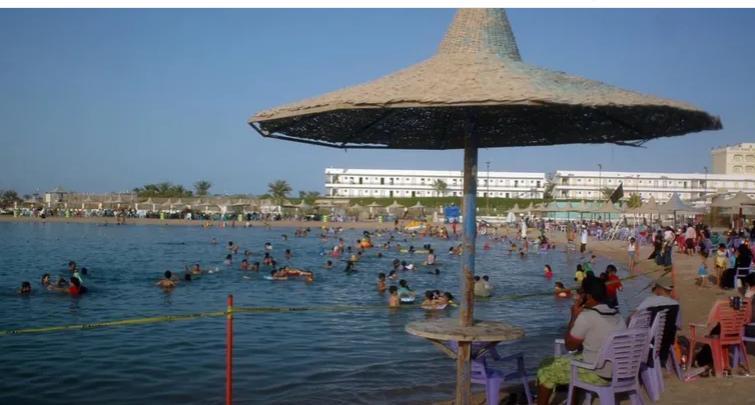
• Two German tourists have killed in stabbings at a hotel beach
• At least four other people were injured and a man was been arrested.
• The knifeman initially killed the two women before injuring two other tourists
• He then swam to a nearby beach and attacked and wounded two more people
• Overpowered by staff and arrested.
• The injured include two Czechs and two Armenians.
• "He was looking for foreigners and he didn't want any Egyptians," a member of staff at the hotel said.
• Three foreign tourists were stabbed at the same resort, renowned for its scuba diving, in January 2016 by two suspected militants from the Islamic State militant group (IS).
• Rezgui was dropped off down a side road, a short distance from the beach, and walked the rest of the way with a Kalashnikov rifle hidden in a parasol.
• When he arrived at the five-star Hotel , he opened fire indiscriminately at tourists on sun loungers on the beach.
• As holidaymakers fled for their lives, the gunman continued his attack, entering the hotel complex via the pool area. He killed 38 people before fleeing into the streets, where he was shot by police.
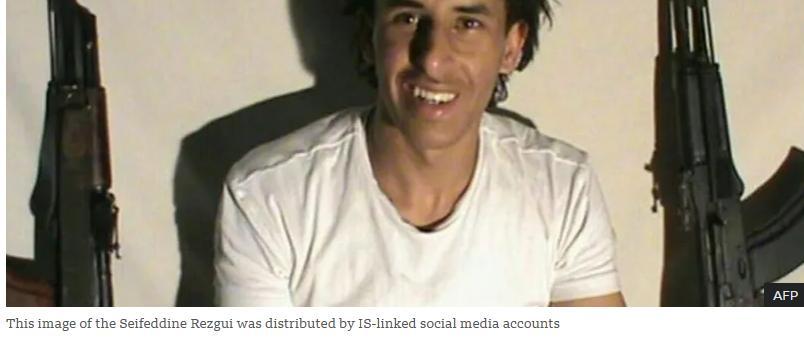

Belfast Northern Ireland 2020
• Date of attack – Brexit day
• Small bomb placed on fuel tanker of truck
• Truck due to board ferry for Great Britain
• Bomb set to explode whilst vehicle is on the ferry
• Bomb set to explode at the point where the sunken ferry would have blocked the port for Months
• 2 Anonymous calls

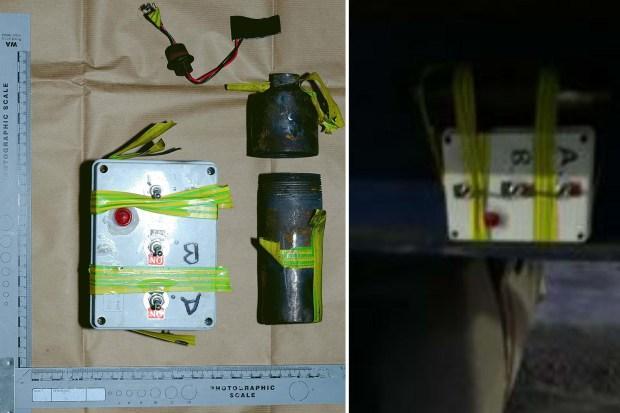


London 2017.
• Five dead, 40 injured
• Pedestrians driven over on bridge
• Attempt to enter UK parliament
• Police officer stabbed
• Terrorist shot
• ‘A woman was pulled alive, but with serious injuries, from the Thames’

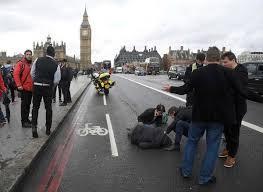
Nice, France, 2016
• Vehicle driven into Crowd

• Major holiday
• 86 killed, 12 children
• Terrorist shot
• Fake weapons
• It occurred beside the sea


• No discussion between Red Teams and Blue Teams
• Prepare a Flip Chart and select group representative
• Take 15 minutes to discuss.
• In random order you will then brief the others
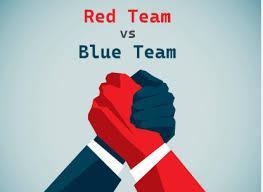
You have been ordered to conduct an attack on tourists (particularly Western tourists)
• This attack will commence at or from the sea
• How will you select your target(s)
• What pre-planning research would you do?
• How would you select your final target?
• How would you or your personnel mount the attack itself?
• How would you or your personnel escape?
• How will you destroy forensic evidence?
• Who is your intended audience?
• Prepare a briefing for the terrorist leader
You have been provided with intelligence to suggest there may be an attack upon tourists (particularly Western tourists}
Command want you to outline
• This attack will commence at or from the sea
• What are the potential targets?
• How will you prioritise your patrol programme
• What briefing will you provide to personnel?
• If there is an attack what is your teams role?
• Which other organisation(s) will you be working with to co-ordinate a response?
• Are your personnel forensically aware? What do you want them to do evidentially?
• Prepare a briefing for command
• You have been ordered to conduct an attack on Critical Infrastructure
• This attack will commence at or from the sea
• How will select your target(s)?
• What pre-planning research would you do?
• How will you select your final target?
• How would you or your personnel mount the attack itself?
• How would you or your personnel escape?
• How will you destroy forensic evidence?
• Who is your intended audience?
• Prepare a briefing for the terrorist leader
You have been provided with intelligence to suggest there may be an attack upon critical infrastructure Command want you to outline
• This attack will commence at or from the sea
• What are the potential targets?
• How will you prioritise your patrol programme
• What briefing will you provide to personnel?
• If there is an attack, what is your teams role?
• Which other organisation(s) will you be working with to co-ordinate a response?
• Are your personnel forensically aware? What do you want them to do evidentially?
• Prepare a briefing for command.
Form into 4 groups. Headquarters MPS have received multiple ‘low level’ reports of and intention by ISIS affiliates to carry out attacks on critical infrastructure or tourist locations. Little else is known other than the terrorist have support on land but the main attack is intended to come from the sea. The intelligence is believed to refer to Male.
Scenario In your groups
Prepare an initial plan
• Risk assessment
• What further information might you ask for?
• Outline Preventative patrolling patterns (with resources you have today at this time). Consider risk prioritized ‘default patrolling’. As opposed to reactive and proactive patrolling
• Prepare Briefing
• Utilize the IIMAC system
One of your patrols has stopped a fishing boat with six men. They have what are believed to be false identification documents. The boat has a large amount of fuel on board and they have knives. A phone book has a number in it that seems strange. 4.18969, 73.53602
What actions are you going to take?
A number of vehicles are on fire on the Sinamale Bridge. It is blocked in both directions. The attackers fled north in hijacked vehicles.
What actions are you going to take?

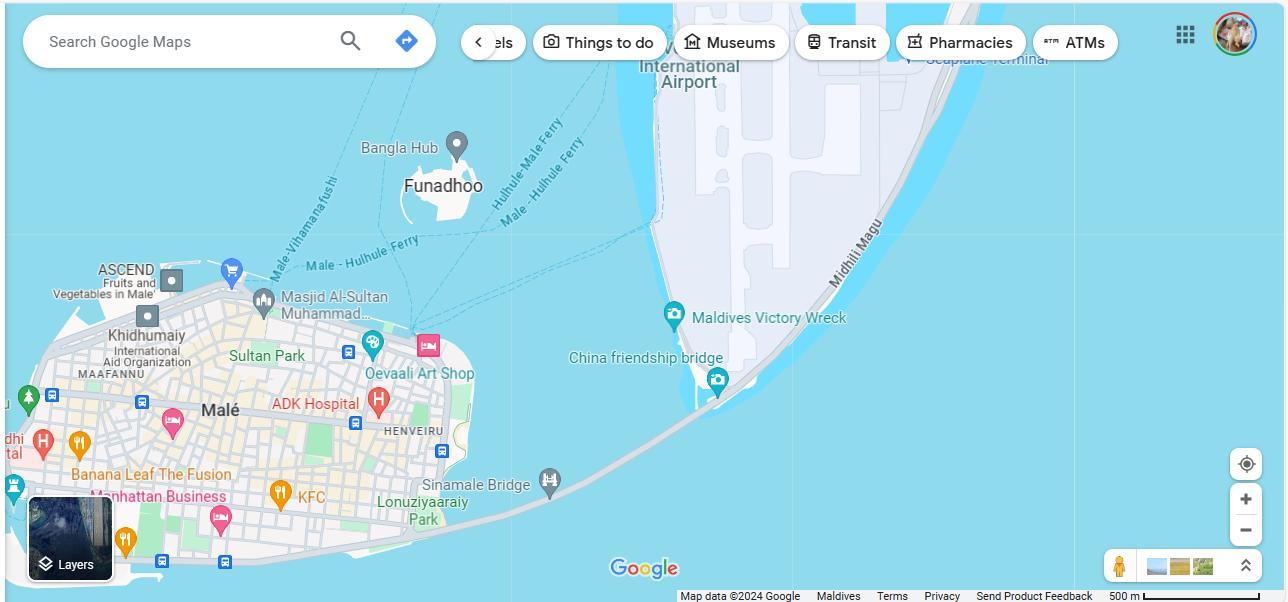
A number of vehicles (believed to by the ones hijacked earlier) have entered the airport runways. They are preventing take off and ramming the wheels of stationary planes
What actions are you going to take?

Feed 4
A boat with approximately 7 persons on board have made their way close to the terminal. They have disembarked and entered the terminal. They are stabbing passengers. What actions are you going to take?

All the terrorists have now either been neutralised or arrested
What actions are you going to take?

Coffee Break
1500-1530

Early reports are coming in that a ferry has been hijacked by 4 men armed with knives. They have 20 hostages and claims to have an explosive device.
What actions are you going to take?

The terrorists have surrendered after negotiation. No one harmed. There was no explosive device. What actions are you going to take?








Dr.
Dr. Linda Duxbury Professor, Sprott School of Business
Carleton University, Ottawa
Linda.Duxbury@Carleton.ca
Andre Lanctot, Rebecca Stilles, PhD candidate
◼ Issues: Police Recruitment
◼ Realistic Job Previews
◼ What are they?
◼ Why should you consider them?
◼ Realistic Job Previews in Police
◼ Our study
◼ Considerations moving forward
One that is likely to increase in the next several years Issues
◼ Quality of the candidates (fitness, background checks)
◼ Applicants frequently drop out of process because they lack well-formed understanding of what the job entrails
◼ Training officers is resource intensive (time, resources) -- having people fail or drop out of the process is very costly
◼ Leadership cadre for tomorrow comes from who you recruit today
◼ Notes the following
◼ Confidence of law enforcement leaders in their ability to attract and retrain talent has declined
◼ 2019 - 63% of law enforcement agencies had fewer applications than in the past
◼ 2020 reported that by a margin of more than two to one, police agencies had more open positions than qualified applicants
◼ 2021 reported a sharp decline in interest in starting a career in policing
2021 study published by Harvard Business Review on police recruitment
◼ Why? – HBR gives a number of reasons:
◼ Diminished public respect for police
◼ Job complexity and danger has increased
◼ Greater public scrutiny (bystander cameras)
◼ Post-pandemic desire for flexible work schedules and remote work opportunities
◼ President’s Task Force on 21st Century
Policing now a decade old
◼ Most recommendations have yet to be implemented
Excellent report from 2024 ◼ https://policepromotion.blog/2023/08/25/policeofficer-workforce-2023-part-2-the-churn-of-joinersand-leavers-service-length-age/
https://policepromotion.blog/2023/08/25/police-officer-workforce-2023-part-2-thechurn-of-joiners-and-leavers-service-length-age/


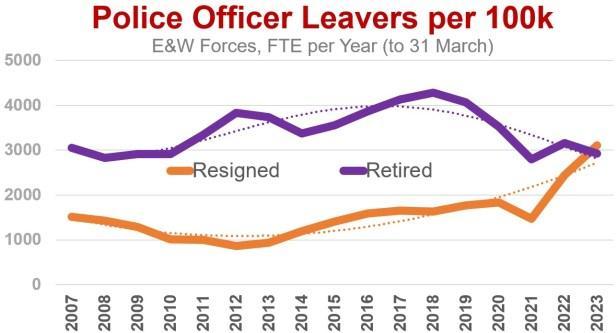
◼ Report says that there is little research on this topic..
BUT what
indicates the following reasons
◼ Early resignation during the probation
◼ They just do not love the job like they thought they would
◼ Pay – especially in the early years
◼ Treatment by management/poor relationships with their colleagues
https://news.stv.tv/scotland/police-scotland-officer-numbers-reach-lowest-levelsince-2008-new-report-shows

◼ Police need to take a different approach to recruitment
◼ Suggestion: Realistic Job Previews (RJPs)
◼ Widespread use in other sectors
◼ Talked about in policing but we could find no evidence it has been adopted
“A Realistic Job Preview (RJP) is a recruiting tool used to communicate both the good and bad aspects of a job. Essentially, it is used to provide a prospective employee a realistic view of what the job entails.”
US office of Personnel Management Give people objective information (both positive and negative)that
can help them determine their fit for the job
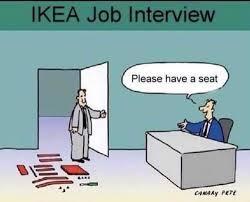


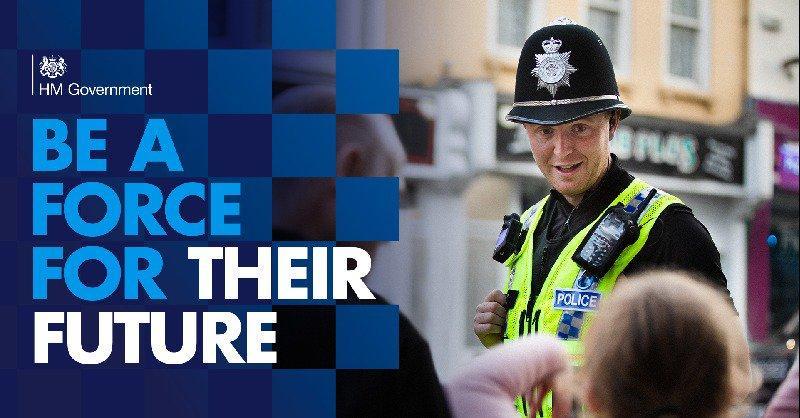





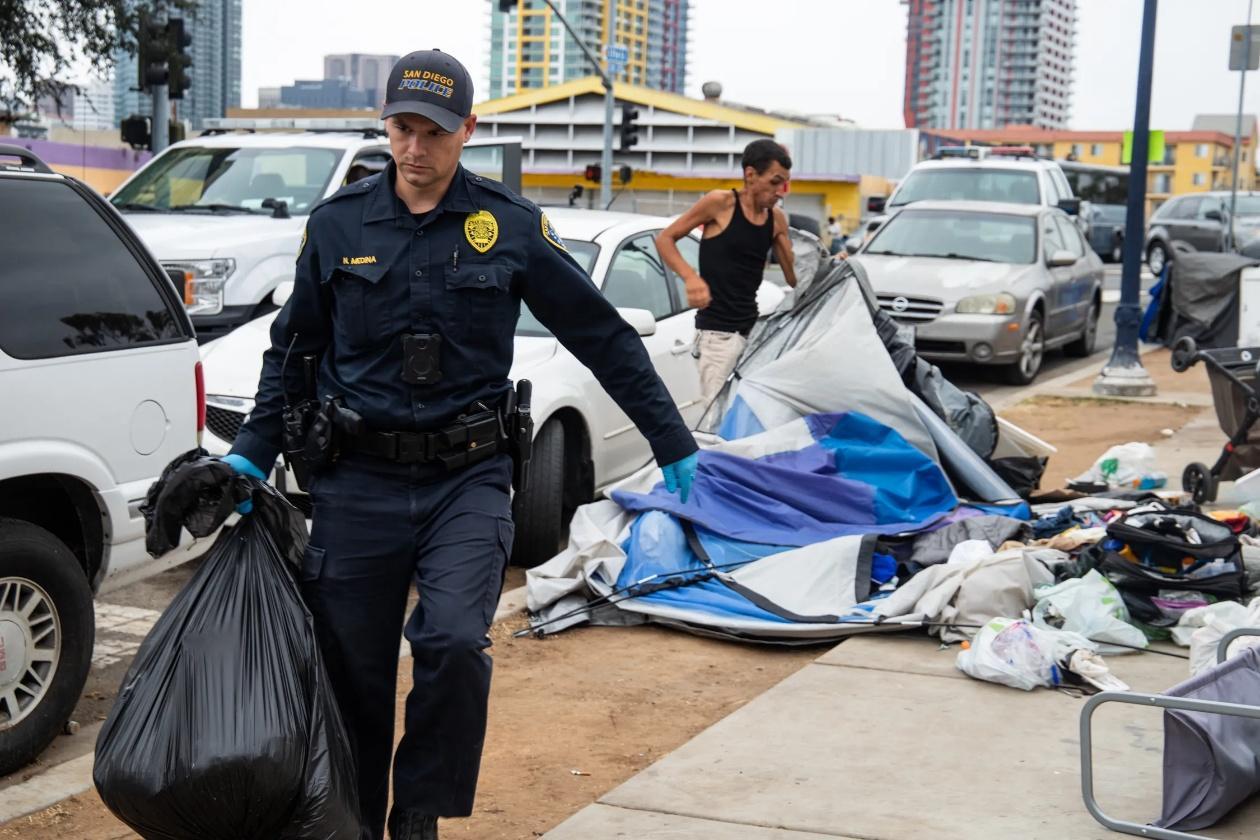
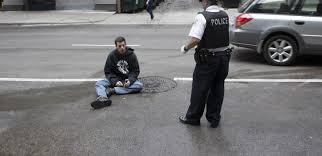



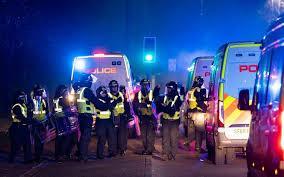


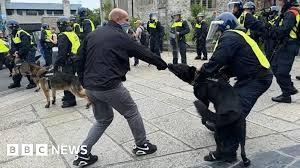
◼ A realistic job preview offers a realistic look into what a job is actually like – no sugar coating
◼ showing both the positives and the negatives so the candidate can get a real feel for what skills and qualifications are needed on the job, as well as what a typical day would look like.
◼ By letting your candidates know your expectations they are able to assess if what you want fits within what they’re looking/prepared to deliver
◼ Weeds out candidates that are not fully committed to the job before they are hiring
◼ Reduces turnover (60% of people quit their job because of a misalignment in expectations)
◼ Reduces accommodations
Research has identified a number of benefits of using RJPs
◼ Improvement in self selection process for applications
◼ Increases employee’s ability to cope with challenges of job
◼ Communicates that the organization is honest
◼ Those who go through RJP process [and decide to take the job] report higher job satisfaction, organizational commitment, and lower turnover rates
◼ Candidates adapt more easily to the job's duties
Research has identified a number of benefits of using RJPs
◼ More effective employee onboarding
◼ Significantly lower risk of a bad hire
◼ Saves your time for those who are a ”good match” for the job
◼ BUT it can lower the acceptance rate for those offered the job
“we cannot do this – people will not join”
Police Recruiter
Our study on RJP in policing:
Objective: Exploring the feasibility of RJP
◼ Interviewed 88 officers
◼ Average age 43
◼ Average of 16 years on the job
◼ 75% were constables
◼ rest were sergeants
◼ 60% males
◼ Motivation for joining the police?
◼ “had always dreamt of being a police officer”
◼ To help people/help the community
“Iwantedajobthatwasnotanofficejob.Iwanteda jobwhereitwouldbealittlemoreexciting,alittlemore challenging.”
IreallywantedajobwhereIcouldhelppeople.”I knowitsoundslame,butit'strue.”
“It'sactuallysomethingIwantedtodofromalittlekid. That'sthatwasmydirectionandcareerpath.” “Igrewupinafamilyofpoliceofficers.Myfatherisa policeofficer.So,Igrewupsharingstoriesandsharing workexperienceswithmydad.”
“Idon'trememberbeingtoldawholelottobehonest–theydidnotgivemuchinformationmeintermsof descriptionofwhatthejobwasgoingtobelike.”
“ButIthinktherewasnotallthatmuchinformation. Thereisanassumption,Ithinkonthepartofthe recruitersaboutthe,youknow,theknowledgethat peoplewillhaveabouttherealitiesofpolicing.AndI mean, therewasnotalotofinformationofferedtome priortotherecruitmentprocess.”
What aspects of the job were not clear to you when you took the job?
◼ Who to go to for support when they were having mental or emotional difficulties
◼ The emotions that they would experience “on the job”
◼ How much time it would take to perform the tasks required of a police officer
◼ Particularly the paper work!
How did officers feel about the information they received about the job during recruitment process?
◼ Mixed feelings
◼ Many felt that they did not have enough information about the job
◼ What information did they wish they had when they were recruited?
◼ Wanted to know more about the complicated realities of daily police work
◼ Wanted to know more about the impact the job would have on their mental and physical health
“Theday-to-dayrealityaboutthisjobisthatyoudealwithpeople attheirworst,youseealotoftragedies,alotofpeopleinpain. Wedon'tputthatonabillboardwhenwerecruitpeople, basically.”
“Whattheypreparedyouforincoursesandthingsatschoolare quitedifferentthanhowtherealityofpolicingreallyis”
“Theynevertoldmethatthejobwashoursandhoursofboredom punctuatedbyminutesofpurefearandadrenalineandfun,right?
…Therewasnopreparation.AftertrainingIhadnoideahowit actuallyworkedonthegroundlevelwheretherubbermeetsthe road..Andnobodytookthetimetosay,thesearetheactual thingsthatyou'regoingtohavetodealwith...theabjectpoverty, mentalhealthissues,...nobodytookthetimetoexplainreally aboutthedayin,dayoutprocess.”
One in three wish more emphasis had been given to how the job would impact their work-life balance
“Youknow,youwork10andahalfhourshiftandthen youcomehomeandyou'reprobablygoingtobe exhaustedandyourwife'soryourpartnerisgoingtobe like,Youknowwhat?Youstillhavetodothis,thisand this,andyouknow,threehoursofsleepatnight.”
“Therewillbenorecognitionofthefactthatyou'renow amother,andthatyoumightneedtoleaveashiftearly togodealwithasickchild,oritmightbeharderforyou toworknights,oryoumightnotwanttoworknights anymore,orliketheshift workwillreallyimpactyour familylikeIthinkthatisnotlaidouttowomen.”
One in three wished that the recruiters had been honest about how the job would impact their wellbeing
“Thesleepissue,thehealthaspectsofit,justthemental healthandtheoverallphysicalhealthaspectsofpolicingand wearingadutybeltfortentotwelvehoursaday.Noneof thatwaseverreallytalkedabout.”
“Verylittletimeisspenttalkingaboutthesortofemotional andphysicalhardshipsthatyou’llexperienceonthejob.”
“Psychologically,thehumanmindisnotsupposedtoseealot ofthestuffwedoattherateweseeitat.Thescheduleis gruelingandit'shardonthebodyandyouknowthatthe workenvironmentisgoingtotakeitstollonyourhealth, physicalandmentalhealth.Noneofthisisdiscussed”
One in five thought that career opportunities within the police were being “over sold”
“OnethingIthink...itwouldhavebeennicetosetthe expectationthatI’mbeinghiredasapatrolofficer,andthatI couldverywellbeapatrolofficerforthirtyyears,andthat anythingelseisuhisabonus.They'renothiringmetobea futuredetective.They'renothiringmetobeafuture inspectororchief.I'mbeinghiredasapatrolofficer,and there'snoguaranteesthatthatI’llgoanywhereelse.Ican apply.Icanbeconsidered. Instead,theysettheexpectation thatIonlyhavetodopatrolforashortperiodoftime,and thenIcangosomewhereelse.”
One in five felt they were totally unprepared for the extent to which politics impacted their work
“You'renotreallyawarewiththejobpoliticsmayentail…you know,whatthepoliticallandscapeyou'reworkinginis.”
“
Withoutgettingtoomuchofasoapbox,Iwouldjustsay howmuchfuckingpoliticalshitaffectsourabilitytodothis job
”
“Itwasmoretheinternalpoliticsandbrotherhoodandallthat
portionofthepolicingsidethatIwouldsayIwasn'tprepared
for.”
One in five felt recruiters needed to tell potential recruits the truth about how the public perceives the police
“Butwearecertainlyledtobelievewhenwestartedthat, youknow,everyonelovedthepolice.Everyonetrustedthe police,andtherewasnosortofillwilltowardsus.Thisis certainlynotthecase.”
“IwishIhadknowntherealityofwhatthepublic's perceptionisofpolicing,atleastinthecurrenttimes, becausethatsortofhitmeharderthananythingelse…Iwas verymuchtakenabackbyhowmuchdisrespectandanger andviolenceandthreats,andGodknowswhatelseI'vebeen subjectedtojustdoingmyjob.”
One in five felt recruiters needed to tell potential recruits the truth about how the public perceives the police
“Iwasnotprepared fortheimpactallsocialmediaandthe policebashingandallthenegativityaroundthejob.”
”Tellpeoplestraightup..Peoplearegoingtosayterrible thingstoyouandthere'sgoingtobeatonofpublicscrutiny directedtowardsyoujustbecauseoftheuniformyouwear, youknow.”
What questions do you wish you had asked before joining the police?
◼ What are the realities of the job?
“Tellmewhatpolicingisabout.Givemetheuncensored, truthfulversiontellmeaboutthedarksideofpolicing,not theflashyside,cruiserchasesandscuffles?Tellmewhat aboutthehardsideofit.”
“Whatarethenegatives?Becausetheyonlyhighlightthe positives.So,tellmeeverythingthat'snegativeaboutthis job.”
What questions do you wish you had asked before joining the police?
◼ What supports does the service provide to the officers?
“Iwouldhaveasked-Whatprogramsandservicesdoyou offerinternallytoofficersthatareexperiencingmental healthissuesorburnoutorfatigueasaresultofthis occupation?”
“Iwouldhaveasked,oncethingsgothard,whodoyou turnto?Whodoyoureallyturntotogethelp? Iwould haveaskedthosequestions.”
What do you know now that you wish you had known before talking the job?
◼ Our informants identified a new of things that they wish they had known when they were considering signing on as a police officer
◼ They mentioned a discussion of these issues should be in any RJP
◼ They all indicated that if they had known about these factors, they either would not have taken the job or they would have prepared differently
Tell new recruits about the toll the job can take on your mental health (50%)
“Talkaboutthementaltollit [thejob]takes,youknow.”
“Maybemoreinformationontheimpactthatthejobhason yourmentalhealth. Likeseeingthethingsthatwesee repeatedly,goingtothecallsthatwegoto,arenotthings thatlikeairquotesnormalpeopleshouldhavetoseeanddeal withattheexponentialratethatwedo.”
“Yeah,there'snopiecetosay;Thisisthebadstuffthat's goingtohappentoyou.Thisiswhatyou'regoingtosee.This ishowyou'regoingtobe.Thisisprobablywhat'sgoingto happentoyou.Watchoutforthis.Lookatthis.Makesure youdothis.Takecareofyourself.Noneofthatisbeing spokenabout.”
Need more information on the dark realities of policing
“here'snopointintherecruitmentprocess-or reallyeventhetrainingphase -wheretheysay,you know,you'vegottodealwithalotofdeath.”
“Theharshrealitiesofwhatthejobis. Justso peopleareawarenottoscarethem,butlikeyou're goingto seepeoplegrievouslyinjured...overdosed ordeceased.You'regoingtoconstantlybegoingto peopleintheirworsttime.”
Need
more information on the dark realities of policing (40%)
“Theytelluslittletonothingaboutsomeoftheawful thingsthatyougetsentto,youknow,ahorrificcar accidentsanddeadchildrenandsuicidesandthings likethat.So,there'salotofthesortofdarkand gloomystuffisleftoutandtheshiny,brightstuffis what'spromotedintermsoftherecruiting.”
◼
To give us information on the gaps in existing recruiting processes we asked:
“...what has surprised you about the job?”
◼ 75% of the officers identified things that really surprised them about the job of police officer
◼ Things that had never come up during the recruitment and training processes
“Ireallywasn'tpreparedforthemagnitudeonsomeofthe thingsI'vebeeninvolvedwithinmycareer.”
“Yeah,IwouldsaytheamountofviolenceinCityX. Definitely.”
“Howmuchcrimethereactuallyishere.Becomingapolice officer,Ithoughttherewasliterallynocrimeatall.”
“Theviolenceorthegore,Iguessthatyouwouldseeor experience,like,youdon'tthinkahumaniscapableof doingcertainthingstoanotherhumanbeinguntilyou've seenit.”
“Iwouldhavelikedtoknowthatitwasgoingtobeavery toxicenvironment.Ithinknotnecessarilythejob,butjust theenvironment,thetoxicity,Iwouldthinkthatwouldbe whatreallysurprisedme.”
“That'saneasyone.Iwouldsaythat,uh,theamountof howmuchweeatourownreallysurpriseme.Howweare witheachotherwhenonthesurfacewe'rebrothersand sisters,butwhenyougetintoit,it'sreallyadogeatdog world.”
“Therageofsomepeopletowardspolice.”
“Ithinkit’ssortofcomingbacktothenegativestuff.Just abouthowtough,howhardthepublicisonus.Thatreally surprisedme.”
“Howpeople,howsocietytreatspoliceofficers,andhow muchanger,hatred,andfrustrationisdirectedtowards policeofficers.AbsolutelyIwasreallytakenabackbythat. Ididn'texpectthat.”
The number of mental health calls police need to deal with (20%)
“Ineverknewwhatlikeuhpovertywas,orwhatan insane,mentallyillpersonwas,right.Sothattypeofcall wasveryeyeopeningtome.”
“IthoughtIwasgonnabedoingalotmorelaw enforcementintermsoflikearrestingpeopleandtryingto getcriminalsoffthestreet,whereasinrealitythebulkof ourjobisdealingwithpeoplewhoareincrisis.Whetherit be,youknow,duetodrugs,alcohol,ormentalhealth.So, wedoalotmoresocialworkingthanwedo,arresting. Peopleneedtoknowthisbeforetheysignup.”
“Peopleneedtoknowthejobwillwillchangeyourmind mentally.Andthat'sjustafactofit.You'renotgoingto breezethroughthis30yearcareerandcomeoutthesame waywhenyoustarted.”
“OK,Ididn'tknowthementalhealthimplicationsofit.I didn'tknowhowitcanchewyouupemotionally, psychologically,howitcanaffectyourpersonallife.”
“Howmuchitreallycanhaveanimpactonyouifyoudon't knowhowtolookforthosesigns,howtoseeifyou'reall ofasuddenyou'refreakingoutintraffic,whenbeforeyou wouldn'thavesaidaword.”
We also asked people:
How can the police make job expectations and the impact of the job on the officer clearer?
“Youtellthemthetruth.”
“Youhavetobetransparent.Imean,that’s whatwelack. Welacktransparencyallthetime,andIthinkthatwejust needtodoabetterjoboftellpeoplethetruth.Thiswill helpusinrecruitingtherightpeople.”
“Ifindthey'renotbeingfull,frankandfairwithjob candidateswithwhatthisjobisandwhatitwilldotoyou. Youjusthavetobehonest,likeit'sanuglyjob,it'sagreat job.Iloveit,Ican'tevenimaginenotdoingit,but,at times,itcanbereallyuglyandIdon'tthinkthey'rereal honestaboutwhatitcanandcan'tdotoyou.”
“Ifthere'ssomethingIcouldrecommend,itwouldbethat peoplethatareapplyingdolikearide-alongoratleasta couple.Sotheyactuallygetfamiliarwiththejob.”
“Ithinkthateveryapplicantwhoisaseriouscontender somewhereintheprocess,theyshouldhavetodoseveral ride-alongswithanexperiencedofficer.Atleastoneofthose ride-alongsshouldbeanightshift.Infact,theyallshouldbe nightshift.
“makeitarequirementthatbeforeyoujoinyouhavetodo atleastXnumberofride-alongs.Thentheywouldseestuff.
Thatwouldbeawayaswellforthecandidatetoknowif they'reagoodfitandfortheserviceaswell”
“Haveanopportunityforpeopletoaskquestionstofolks whoareontheroadasopposedtorecruiterswhoare typicallythosewhoI'vebeenworkinginanofficefora verylongtime.”
“Youknow,sittingdownwithactualpatrolmenorpatrol womenandhavingaconversationwiththemtoreallyfind outwhatthenutsandboltslookthedayin,dayout routinesofthejobare,youknow.”
“Youneedtohavesomeonewho'shadanumberofyears experiencetosortofexplainthattoyou-ornotexplainit toyoubutguideyou -throughsomeofthechallenges.”
Career expectations need to be discussed so that people have realistic expectations going in (25%)
“Makesurethattheyunderstandalsothattheyarebeinghired asapatrolofficers.Well,you'llbedoingthatjob.You'llbe goingintothoseevents,thosesituationrepeatedlyandfor numerousyears.Soyouneedtobementallypreparedforit.”
“Behonest–tellthemthatif heydon'twanttodopatrolina carfor30years,don'tapply.Yeah,Ithinkthatshouldbethe numberonemessagetoeverybodyonthejobispatroland anythingelseisathrillandaperkthatyoumayormaynot get.”
Yeah,Imean,Ithinkit'dbegoodforthemtoexplainexactly whatourroleentailsandwhattypesofthingsyou'regoingto beexposedto,andhowwedealwithitinternally,andwhat's offered.Youknow. Thisisthejob.Butyouknowthatthere's programsofferedordebriefsofferedafteradifficultcall,and nottobescaredtotalkaboutitright.”
“Ithinkcandidatesneedtounderstandthattheywill,likeitor not,beaffectedbytheireverydayduties,andtheyhavetobe abletohaveastrongmentalhealthandtheabilitytocopeor tofindhealthycopingmechanismstogetthroughtheir30 yearcareer. It'smy26thandtherewasacoupleofdarktimes inthere.”
“Ithinktherewouldbesometobegainedforpotential candidatestohavetoattendapresentationtounderstand theinsandoutsofpolicingtherequirement,theimpactthat itwillhaveonyou,whetherit'sphysicalormental.”
“Ithinkweshoulddosomekindofaninformationsession thatpeopleneedtositthroughwhereyouhavedifferent departmentsspeaktoyouandgivesomedetailonstuff.I mean,theydothatonceyou'rehired,butitwouldbebetter intherecruitmentprocessbecauseIthinkthere'ssome peoplethatwouldjust,youknow,I'moutofhere.”
33% have become more defensive, less trusting
“Youseedangeraroundeverycorner,butIprobablyam overlyprotectiveinsomewaysaboutmykids.Alittlemore vigilant.Idon'ttrustpeoplethesameway,youknow…I'm alwayslookingatsomebodyfromasuspiciousstandpoint.”
“AndIfindifI'mwithpeopleIloveincrowdsorlike,say, vacationingorwhatever,I'malittlebitmoreintunewith what'shappeningaroundme.So.Ithinkthat'slikeevery cop,though,tobehonestwithyou,Ithinkthey'revery awareoftheirsituation,theirenvironmentandeveryone aroundthem,almosttothepointwhereitprobablyisalittle toomuchlikeyou'realwaysexpectingtheworst,maybe,or you'realwaysreadingpeople.”
33% have become more defensive, less trusting
”Youseedangeraroundeverycorner,butIprobablyam overlyprotectiveinsomewaysaboutmykids.Alittlemore vigilant.Idon'ttrustpeoplethesameway,youknow…I'm alwayslookingatsomebodyfromasuspiciousstandpoint.”
“AndIfindifI'mwithpeopleinacrowdorvacationingor whatever,I'malittlebitmoreintunewithwhat'shappening aroundme.So.Ithinkthat'slikeeverycop,though,tobe honestwithyou,Ithinkthey'reveryawareoftheir situation,theirenvironmentandeveryonearoundthem, almosttothepointwhereitprobablyisalittletoomuchlike you'realwaysexpectingtheworst,maybe,oryou'realways readingpeople.”
25% suffer from anxiety “Iwasgettingpanicattacks.”
“I'vegotacuteanxietydisorder.”
“Justlikegeneralanxiety,andjustlikefeelingalittlebit overwhelmedsometimes.”
“Ididn'tknowwhatanxietywasuntilIstarted experiencinganxiety,andit'suhitisthemostum frustratingthing. Yeah,theanxiety,like,panicattacks likeInever,neverthoughtthatIwouldbesomeoneto experiencethosethings,youknowwhatImean.”
How has the job impacted our
respondent’s
25% report poor sleep quality
“SoIthinkinabilitytosleepisabigone.”
“
Idon'tsleepwellatall.Ihaven'tsleptwellin years,years,years,youknow.I'llsleepafew hoursanight,thenI’mup.Icouldn'ttellyouthe lasttimeIstoppedthroughthenight.”
“SoIthinkthebigthingformeisthatithas damagedmysleepcycles,soIhavedifficultywith fallingasleeporstayingasleep.”
◼ Less patient (20%)
“YouknowIdon'thavethesamepatiencethatIthatIonce did.”
◼ More cynical (20%)
“Idohaveamorenegativeangleonsociety.Iamsarcasticas hellandacynic.”
◼ Depressed and sad (20%)
“Iwentthroughlikeareallydarkperiodofdepression.I'lljust feellikeIwanttocry.Ijustwanttocryaboutwork.”
◼ 11% had a mental health crisis
The majority (85%) of our officers reported that an RJP would have made them more mentally prepared for the realities of policing
What if your child wanted to be a police officer? What would you tell them?
I would give them a “RJP” of what they job entailed... If they still wanted to become an officer I would support them (66%)
“Sitdownandhavethatgood,thebadandtheuglytalk.”
“Iwouldtellthem,youknow,thisistherealityofthejob. Youknow,Iwouldn'tsugar-coatit,butIalsowouldn'tbe negativeaboutitbecausetherearealotofpositivestoit.
ButI'marealist,soIwouldsay,youknow,thesearethe prosandthecons.”
What if your child wanted to be a police officer? What would you tell them?
I would discourage them from joining (36%)
“Well,we'vealreadytoldourchildrenthatthat'snot happening.”
“Iwouldalwaystrytodeterthemfrombecomingapolice officer.”
“Iwouldtelleverybodytobecomeafireman.”
“Ifitwasmychild,itwouldbelikenofuckingway.”
What if your child wanted to be a police officer? What would you tell them?
I would support it – encourage them (26%)
“I'vedoneitbefore,supportedthemthroughtheprocess.” “Iwould.honestly,encourageeveryonetodoit.”
“Fullysupportive.Istillthinkit'sagreatcareer.Istilllove myjob,butIwouldmakesurethattheyunderstandwhat they’regettinginto.”
So, should you consider implementing an RJP in your organization?
◼ RJPs are most beneficial for professions
◼ where potential applicants lack knowledge of the profession
◼ where there is a high (or at least costly), turnover/accommodation rate
◼ when applicants have other job options – those who really need the job will take it, even it is a poor fit
◼ BUT they will only work if those in charge are committed to being honest during the application process
To serious candidates before the job is offered
do not wait too long – as you lose the benefits of this process if the person does not have the time to decide not to take the job
◼ Information on the job on service’s website – read before they apply
◼ Suitability quiz – questions on shift work etc.
◼ (see: https://blog.ongig.com/video-jobdescriptions/realistic-job-previews-from-nationwide/).
◼ Video’s: “A day in the life of....”
◼ When pool is smaller
◼ Mandatory information sessions
◼ Discussions with seasoned officers with high credibility
◼ Mandatory ride alongs
Our review of the literature showed two ways this was discussed in policing circles
◼ Some studies recommend that RJPs be considered by Police Services as way to improve recruitment and retention process and enhance officer commitment
◼ Practitioner guides – on best practice
◼ Orrick (2018) provides a series of short RJPs offered by the International Association of Chiefs of Police’s
Discover Policing website (see https://www.youtube.com/playlist?list=PLmtGX_wm4n_HsMCnLy6CnbDlgTPIynC Bh).
Is this a partial solution to recruitment, retention and mental health issues experienced by many services today?
Questions




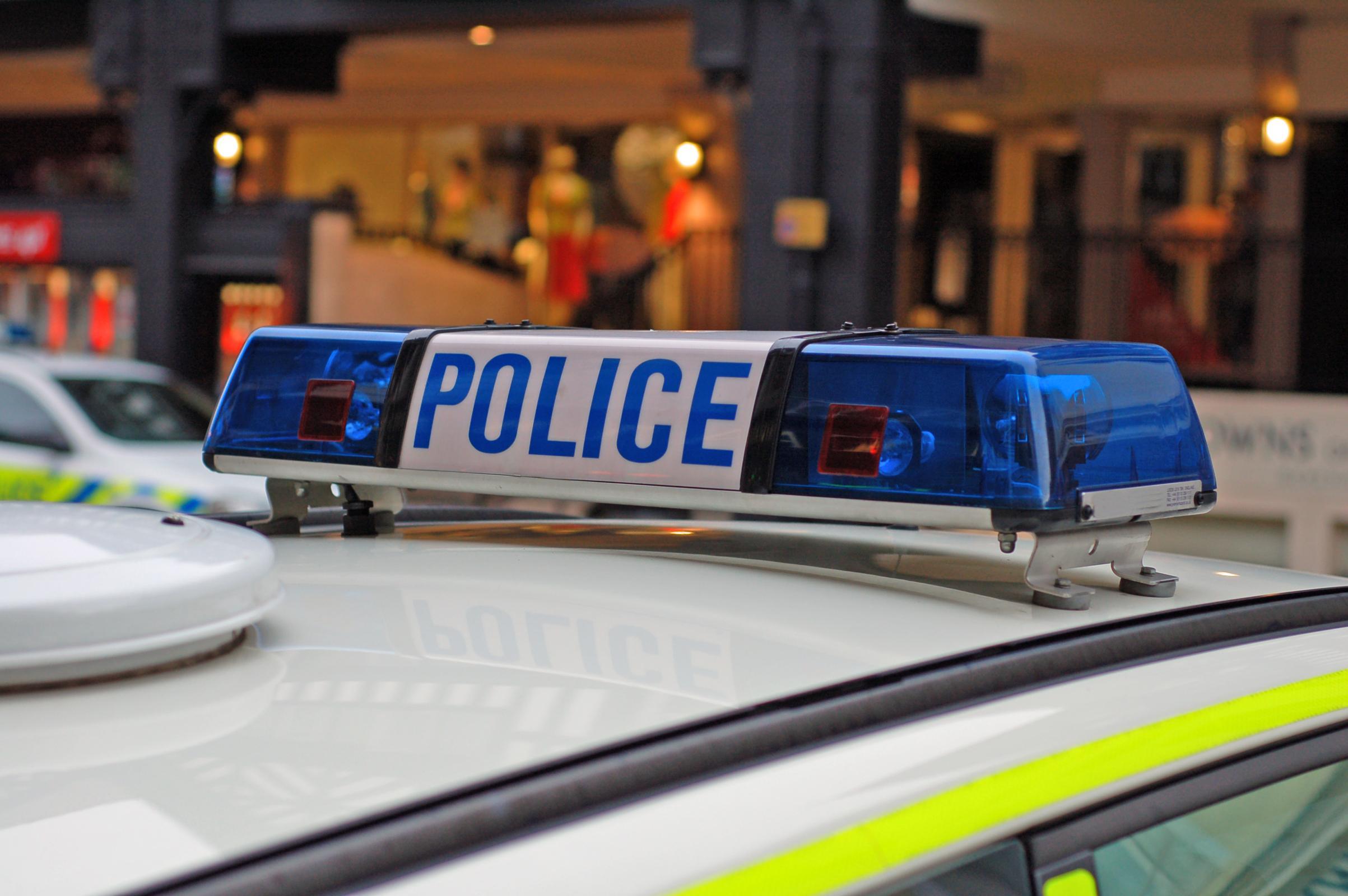

• A comprehensive package of insurance designed to protect you and your colleagues
• Designed and developed by Police Officers working with Insurance Specialists
• Specifically reflects the unique nature and risks associated with Policing.

• Cost savings
• Unique “Heads of Cover” not available on an individual basis
• Bespoke insurance designed to meet the majority of your needs
• Continues into retirement without further requirement for underwriting.
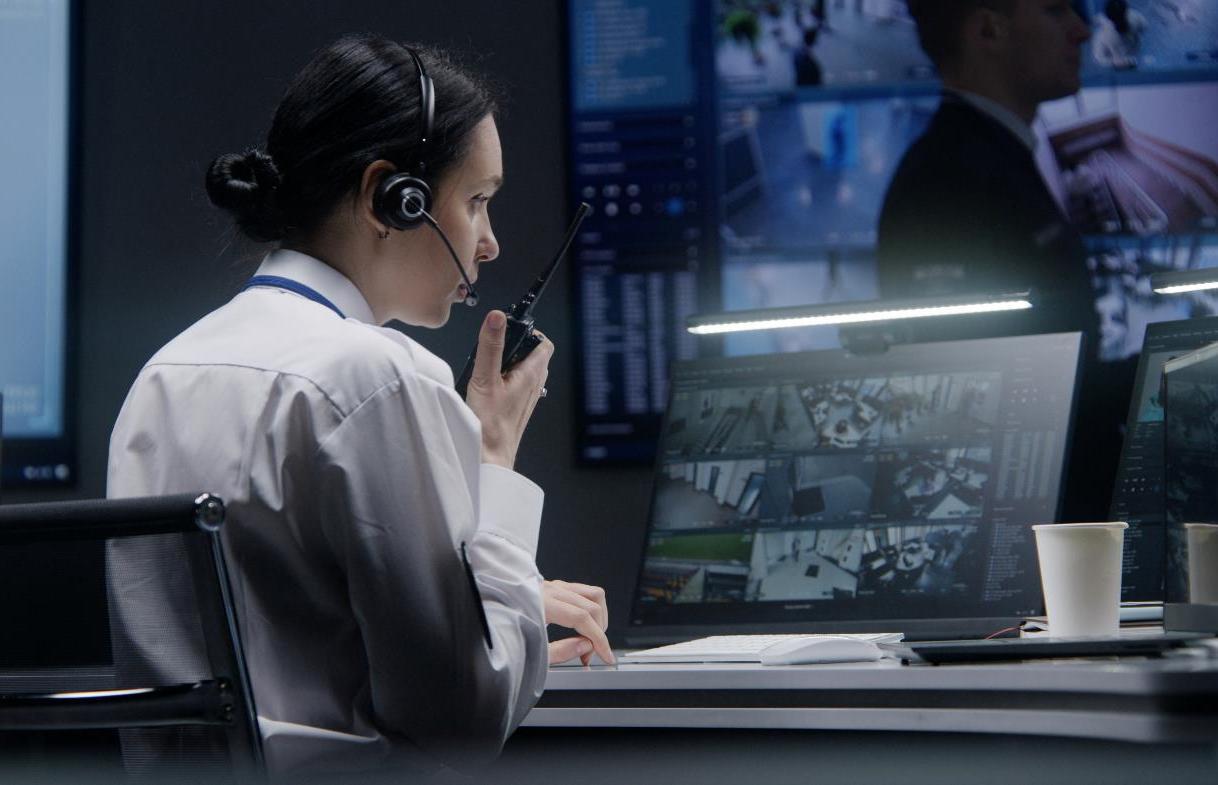

• Life Insurance cover of £140,000
• Cover is written in Trust
• Enables benefit to be paid quickly and free from Inheritance Tax
• Can be used in conjunction with “death in service” benefit as all or part of your overall life insurance needs
• Terminal prognosis advance included
• Includes child death grant of £5,000
• Top Up Cover available.

• Critical illness cover of £30,000
• Payable 14 days from the date of diagnosis or surgery
• Top up cover available on an individual basis
• Includes child critical illness cover of £7,500
As a member of the Group Insurance Scheme, serving members and their partners are entitled to additional life and critical illness insurance
This optional cover is available Now
Premiums are payable by direct debit

• On duty assault benefit – firearm/stabbing/dog attack/burns
• Permanent total disablement / accidental loss of use benefit

• Income protection due to reduced pay caused by sickness absence
• Benefit becomes payable after 26 weeks of absence if pay is reduced:
20% of scale pay for up to 26 weeks
40% of scale pay for up to 26 weeks
• Works with DWP benefits to protect your family income in the event you cannot work.


• Worldwide Annual Family Travel Policy including overnight trips in the UK
• Any number of trips up to 60 days per trip
• Covers the member, cohabiting partner, and dependent children under the age of 23, who normally reside with the member
• Full Cruise Cover - (New Benefit)
• Smart Delay Plus (Airport Lounge Access for delayed flights of 2 hours) – (New Benefit)
• Cover includes winter sports and standard sporting activities such as scuba diving to 30m
• For non-standard sporting activities or longer trips contact Philip Williams and Company to arrange cover.



• Comprehensive Motor Breakdown Policy for the member, partner, UK and Europe, which includes:
• Roadside Assistance and Recovery
• Home Start
• Alternative Travel
• Emergency overnight accommodation
• Misfuel Assist/Lack of fuel
• Message Service
• Caravans and Trailers up to 23 feet
• Keys
• Cover is for any car, motorcycle or car derived van in which the member & partner is travelling throughout Europe

• Mobile Phone Cover for member
• Includes cover for accidental loss, accidental damage, theft or breakdown whilst in your possession
• Phones repaired or replaced on a like for like basis at the discretion of the insurer
• Policy excess of £75.00
• Emergency home repair
• Heating and boiler cover
• Plumbing and drainage problems
• Damage which affects home security
• Vermin infestation
• Roof damage.


Quotations based on a 40-year-old non-smoker in good health (February 2025)
• Partner Cover also available for just £16.05 per month
• Partner life cover: £100,000
• Critical Illness Cover: £25,000
• Top up life and critical illness cover available.

Thank you for your time.
Questions?



















+Victims and Witnesses Commissioner for Scotland
+Trauma-Informed Practice
+Extension of trauma-informed practice to civil proceedings
+Abolition of the not proven verdict, with related reforms
+Creation of the Sexual Offences Court
+Provision of an automatic lifelong right of anonymity



• Sexual Offences (Scotland)Act 2009
• Victims and Witnesses (Scotland) Act 2014
•Abusive Behaviour and Sexual Harm (Scotland)Act 2016
• DomesticAbuse (Scotland)Act 2018
• Vulnerable Witnesses (Criminal Evidence) (Scotland)Act 2019
• Forensic Medical Services (Victims of Sexual Offences)(Scotland)Act 2021















• Why?
Functions • A National Justice Service?








• Duties on criminal justice agencies
• Standards of Service to include standards on trauma-informed practice.
• Court rules and procedures on trauma-informed practice
• Judicial Scheduling
















• Not proven verdict
• Perceived issues
• Statistics
• Consultation Response
• Practical Outcomes?








Size of Jury
Consultation
Required Majority
No Hung Juries
















• Victim Anonymity • Representation for Complainers • Judge-only Trials







• Not Proven Abolition and Jury Composition Reforms Most Significant
• Complainer Experience Improvement – Will it Work?
• What’s Next? Abolition of Corroboration? Proof
Beyond Reasonable Doubt?











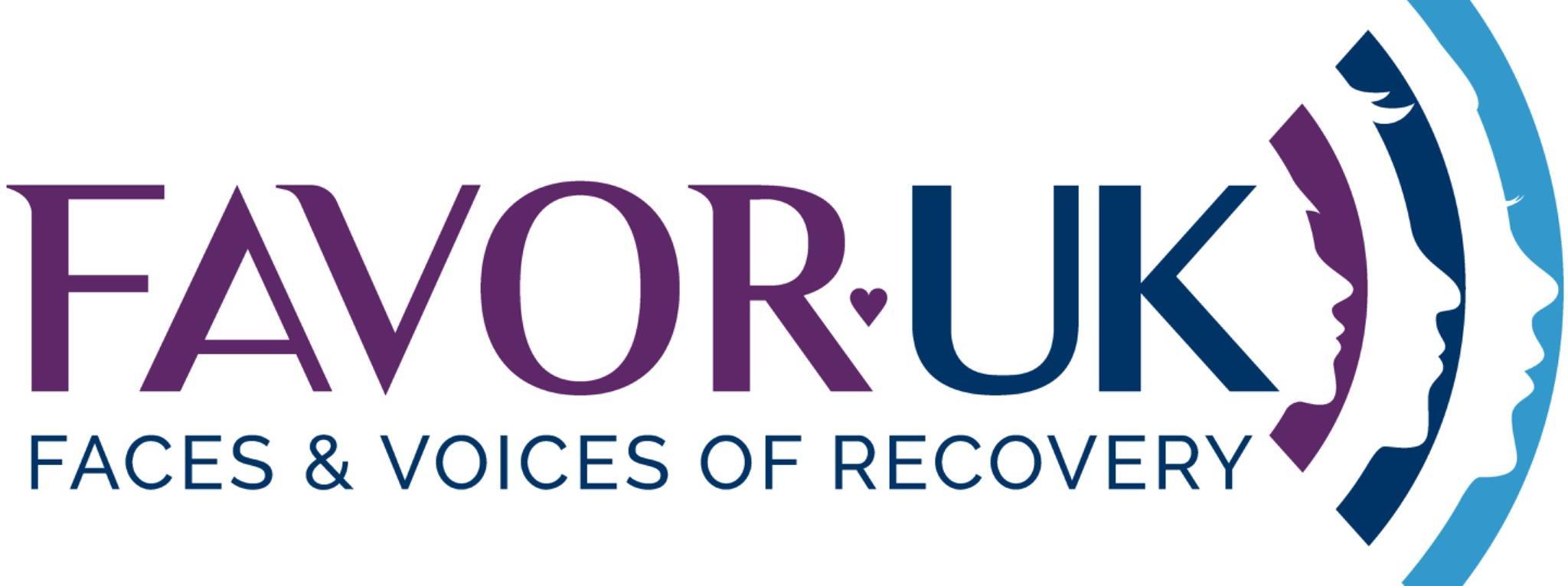

Scotland’s Drug Crisis: Time for a Recovery-Oriented
• FAVOR UK is a leading addiction recovery advocacy organisation, committed to systemic reform and ensuring people have access to treatment.
• Two major initiatives leading the charge for change:
• The Right to Recovery Bill – a legislative push to guarantee access to treatment.
• The Advocacy Case Worker Service – a direct support system for individuals navigating addiction recovery services.
2. The Right to Recovery Bill: A Legislative Solution
• What is it?
• A proposed law that enshrines the legal right to addiction treatment for those seeking recovery.
• Aims to eliminate barriers to accessing detox, rehab, and recovery support.
• Why is it needed?
• Scotland has one of the highest drug-related death rates in Europe 1,051 drug deaths in 2022.
• Too many people seeking treatment face long waiting lists, bureaucratic obstacles, or a lack of available services.
• Key Provisions:
• Ensures that any individual who seeks treatment must be provided it within three weeks.
• Allows for a second opinion if the individual is dissatisfied with their treatment plan.
• Requires annual government reporting on access and outcomes.
• Creates a code of practice to standardise addiction treatment services.
3. The Advocacy Case Worker Service: Direct Support for Individuals
• What is it?
• A specialist support service that provides individuals with one-on-one advocacy to access treatment.
• Key Features:
• Personalised guidance – Navigating the complex treatment system.
• Challenging service refusals – Ensuring individuals get the care they need.
• Holding services accountable – Pushing for better policies and practice.
• Impact So Far:
• Many individuals who were previously denied treatment have now secured places in rehab or detox thanks to this service.
• Bridges the gap between policy changes and real-world access to care.
4. Call to Action
• For policymakers: Support the Right to Recovery Bill to guarantee treatment access.
• For law enforcement & healthcare professionals: Engage with the Advocacy Case Worker Service to direct people into recovery instead of cycles of addiction and criminalisation.
• For the public: Help amplify these efforts—recovery must be a right, not a privilege.
• Conclusion: Scotland needs real solutions, not more rhetoric. The Right to Recovery Bill and the Advocacy Case Worker Service offer a clear, actionable path forward.
• Scotland has the highest drug-related death rate in Europe.
• Current harm reduction policies (safe supply, decriminalisation) have failed to reduce deaths.
• Over-reliance on opioid substitution therapy (methadone) leaves people trapped in addiction.
• Lack of access to residential rehabilitation and recovery pathways.
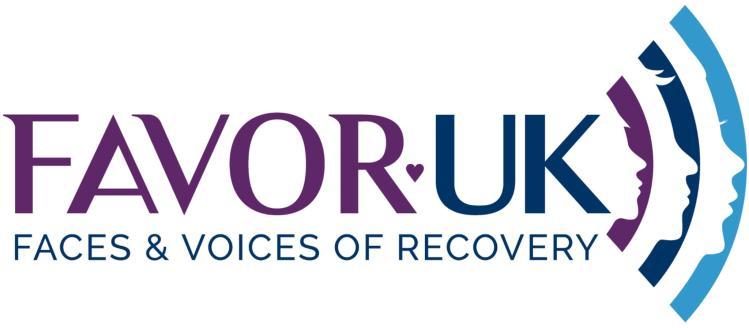
• **Portugal’s decriminalisation model has led to:**
- A 59% increase in drug use (EMCDDA data).
- High HIV rates before and after decriminalisation.
- Rising heroin use and overdose deaths since 2005.
• **Pacific Northwest (Oregon, Vancouver, San Francisco)**
- Decriminalisation led to open-air drug markets, rising crime, and a public backlash.

- Treatment services were not expanded, leading to increased disorder.
• Increase in drug-related deaths since 2010
• Overcrowded treatment centres, long waiting lists
• Surge in public drug use in urban areas
• Lack of investment in long-term recovery support
References: See notes section for full citations.
• Record overdose rates since Measure 110 (2020)
• Only 1% of cited individuals sought treatment
• Drug use in public spaces surged
• Limited treatment infrastructure, funds misallocated
References: See notes section for full citations.

• People **can** recover—but only when given the right support.
• The **Right to Recovery Bill** ensures access to treatment, including rehab.
• Investment in **prevention, rehabilitation, and peer-led services** is needed.
• Harm reduction must be **balanced** with genuine recovery opportunities.
• **Case Worker
Advocacy Service**
- 123 clients supported.
- 22 rehab placements secured.
- 41% of drug-related deaths occur **within treatment**, but FAVOR clients have had **zero deaths**.
• **Peer-led advocacy is highly effective** in guiding people toward recovery.
• FAVOR’s approach: **rights-based, proactive, holistic support**.

• Decriminalisation has **empowered drug dealers and criminal networks**.
• The police **must** have the tools to dismantle drug markets and enforce consequences.
• Rehabilitation and law enforcement must work **together**, not against each other.
• Preventative policing can **stop addiction before it starts**, especially for young people.

1. **Increase funding for residential rehabilitation and recovery services.**
2. **Reform addiction treatment to focus on recovery, not long-term dependence.**
3. **Empower police to disrupt drug markets and support prevention.**
4. **Improve access to mental health and addiction services.**
5. **Ensure policy is based on evidence, not ideology.**

• **Support the Right to Recovery Bill.**
• **Demand investment in residential rehab and early intervention programs.**
• **Ensure police have the tools they need to tackle organised crime.**
• **Shift the focus from harm reduction-only policies to long-term recovery.**

• Harm reduction **alone** is not enough—it must be part of a broader recovery strategy.
• Scotland’s current trajectory is **failing**. A shift toward recovery, prevention, and accountability is critical.
• This is not about ideology—it’s about **saving lives** and **restoring communities**.

• Countries with robust recovery systems see lower relapse rates (White, 2008; Dennis et al., 2003).
• Long-term rehabilitation reduces criminal reoffending (McSweeney et al., 2007; Mitchell et al., 2012).
• Investment in treatment saves money on criminal justice costs (NIDA, 2012; Ettner et al., 2006).
• Law enforcement and health sectors must collaborate for effective outcomes (Babor et al., 2010; Hughes et al., 2018).





